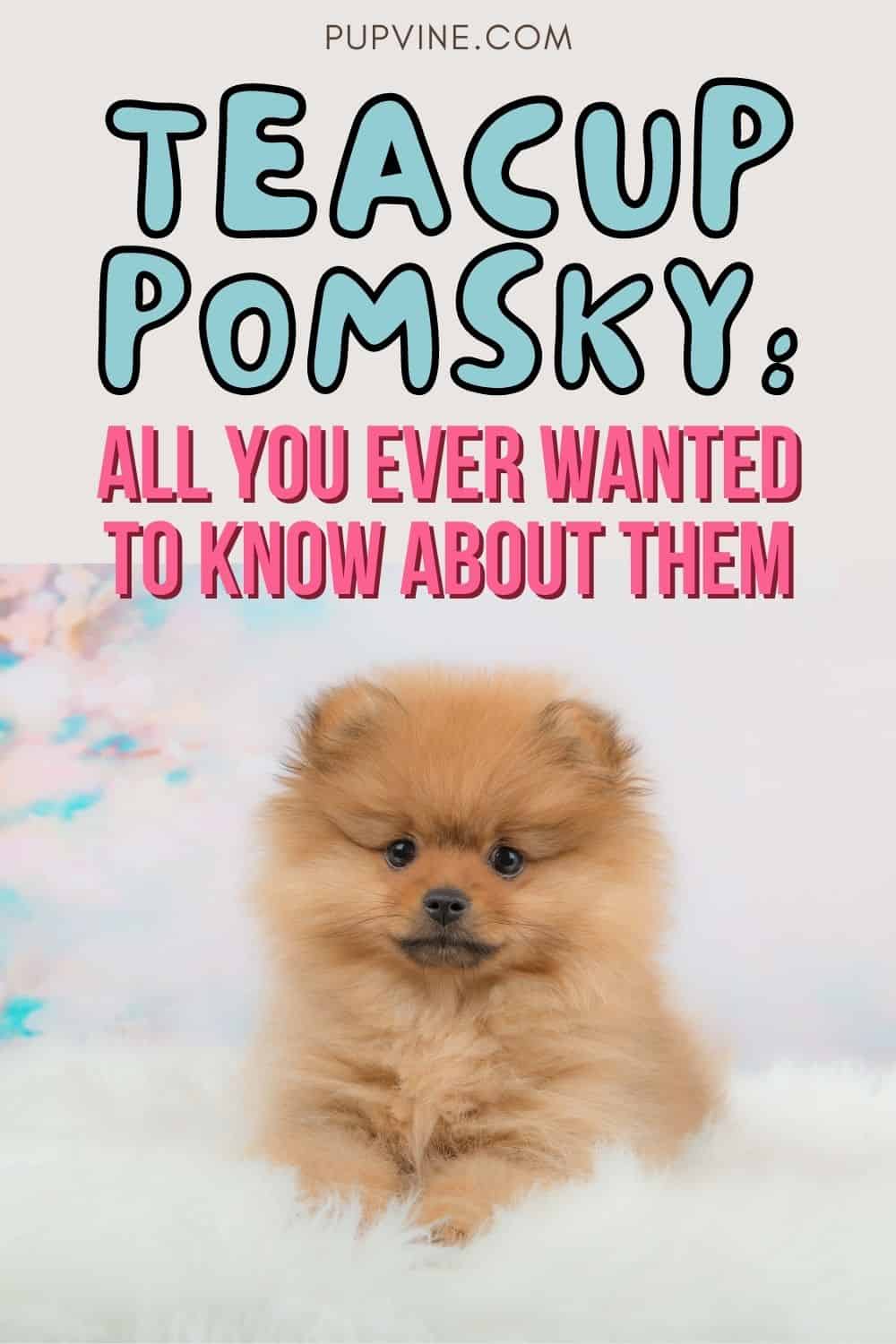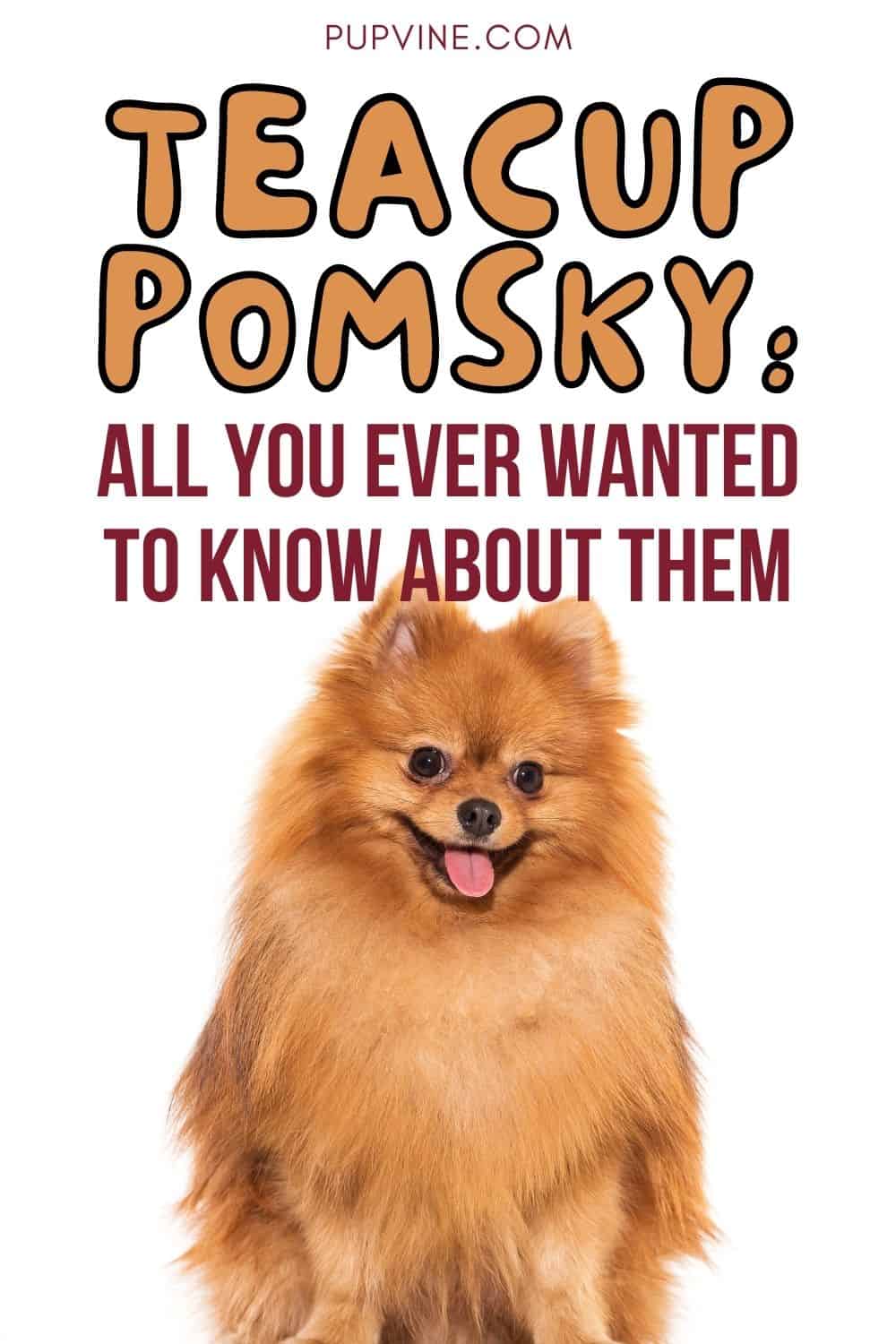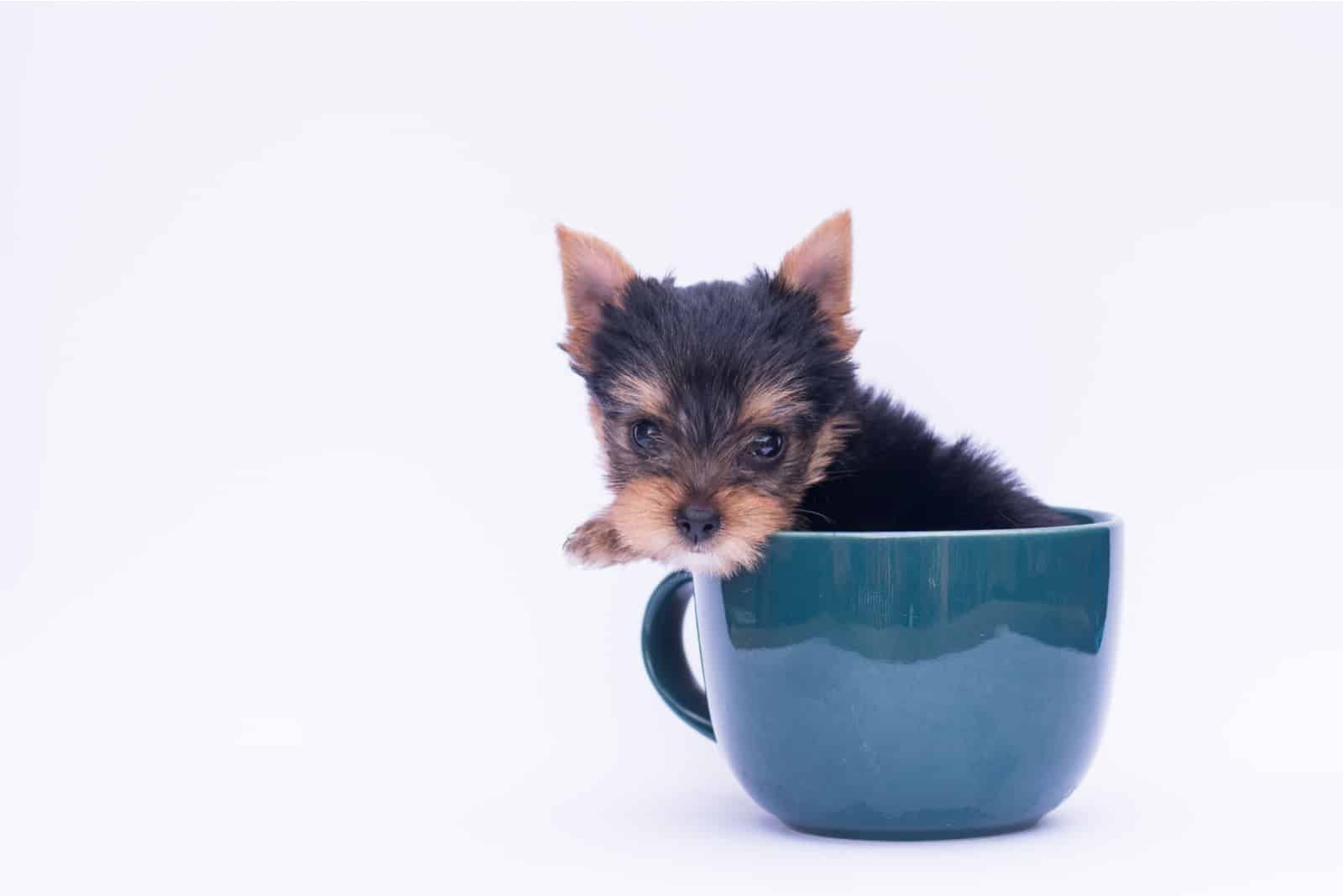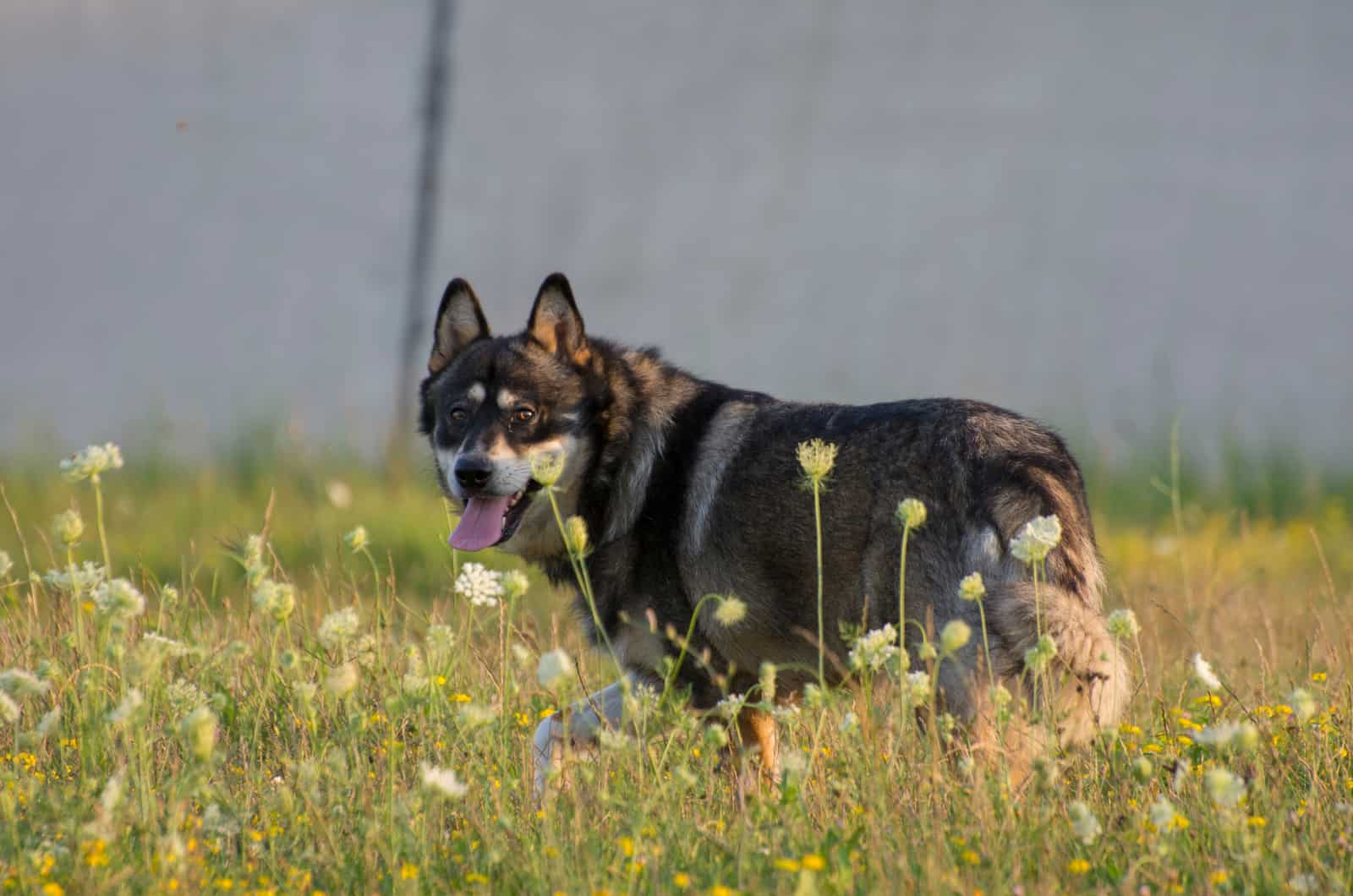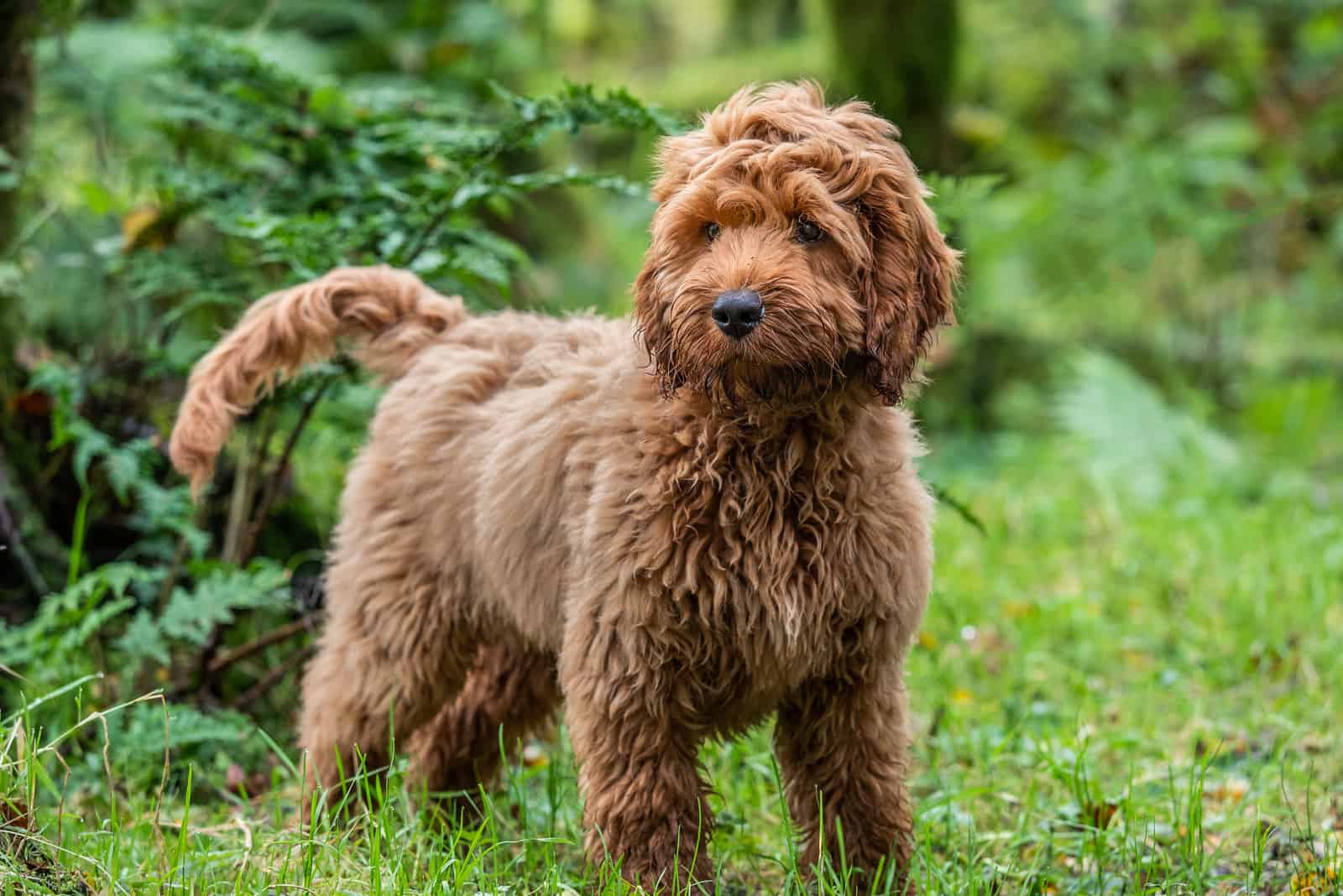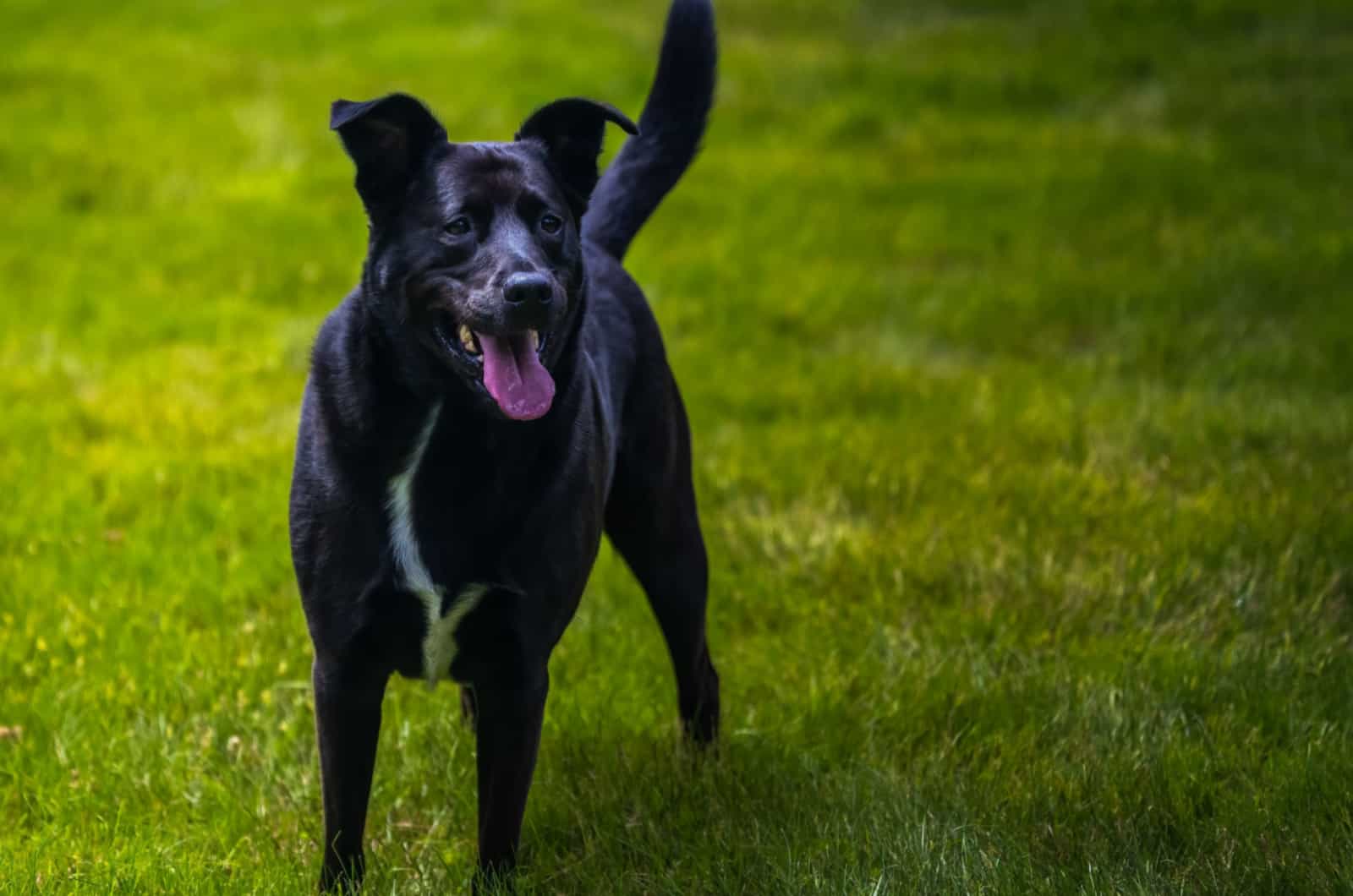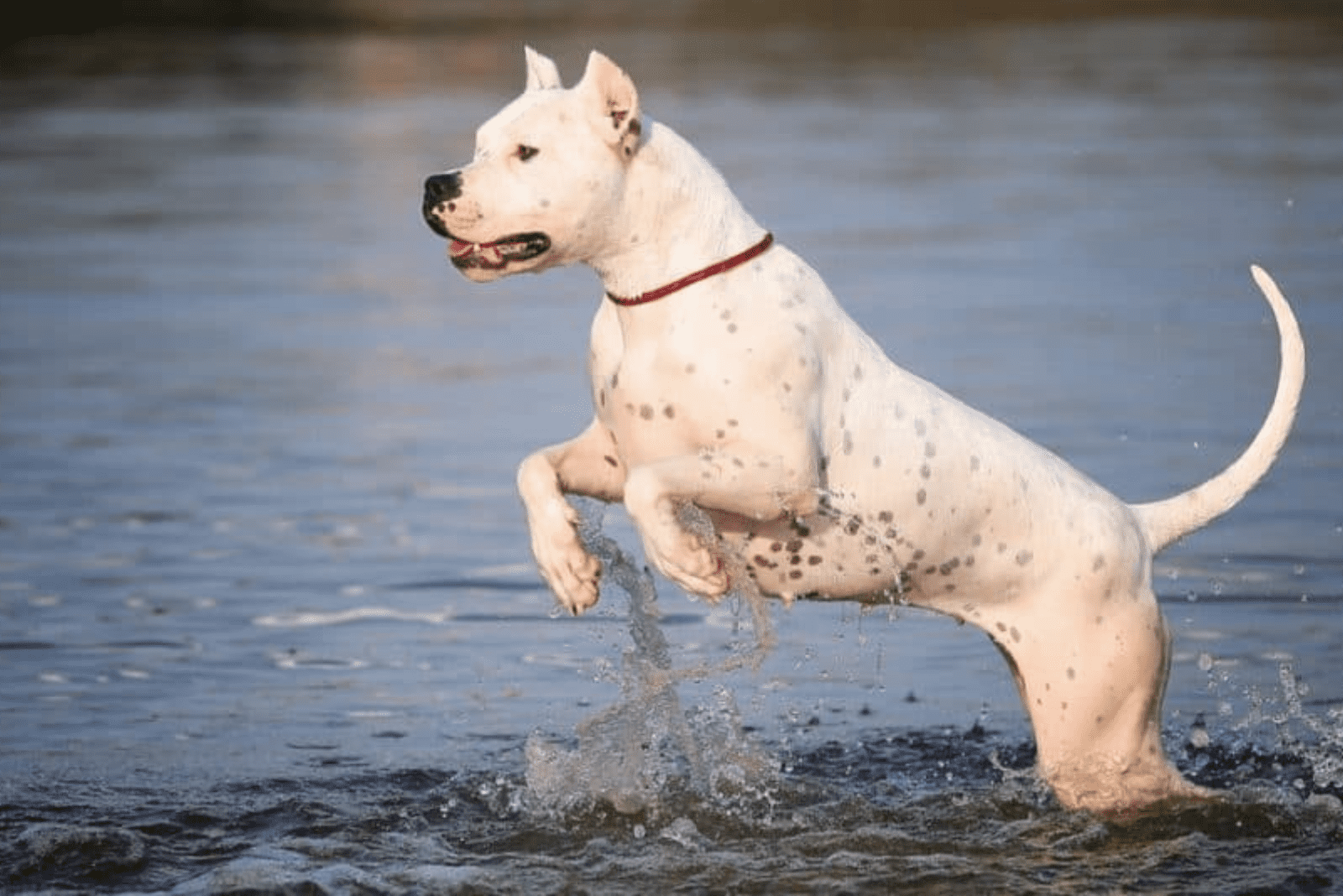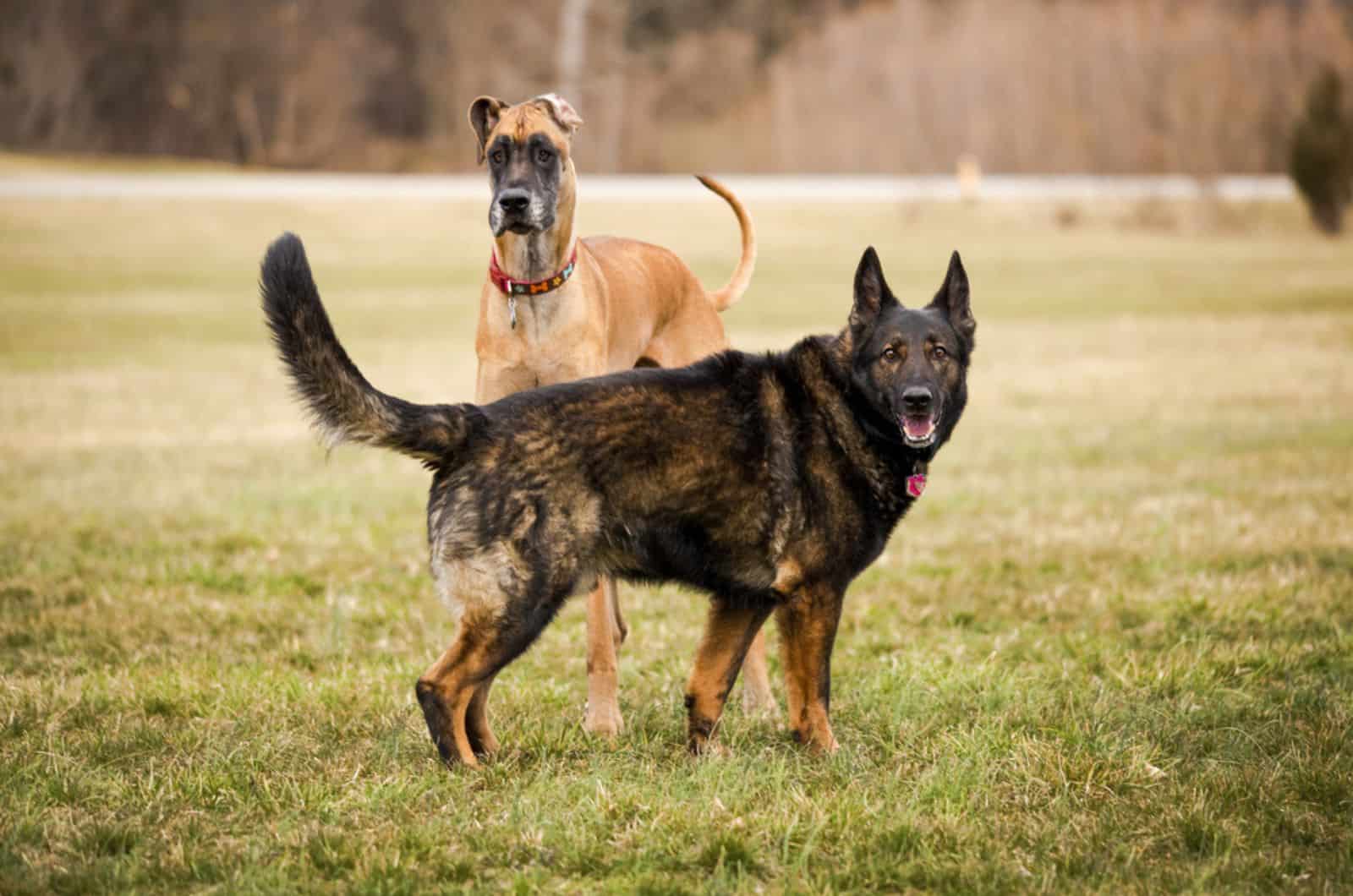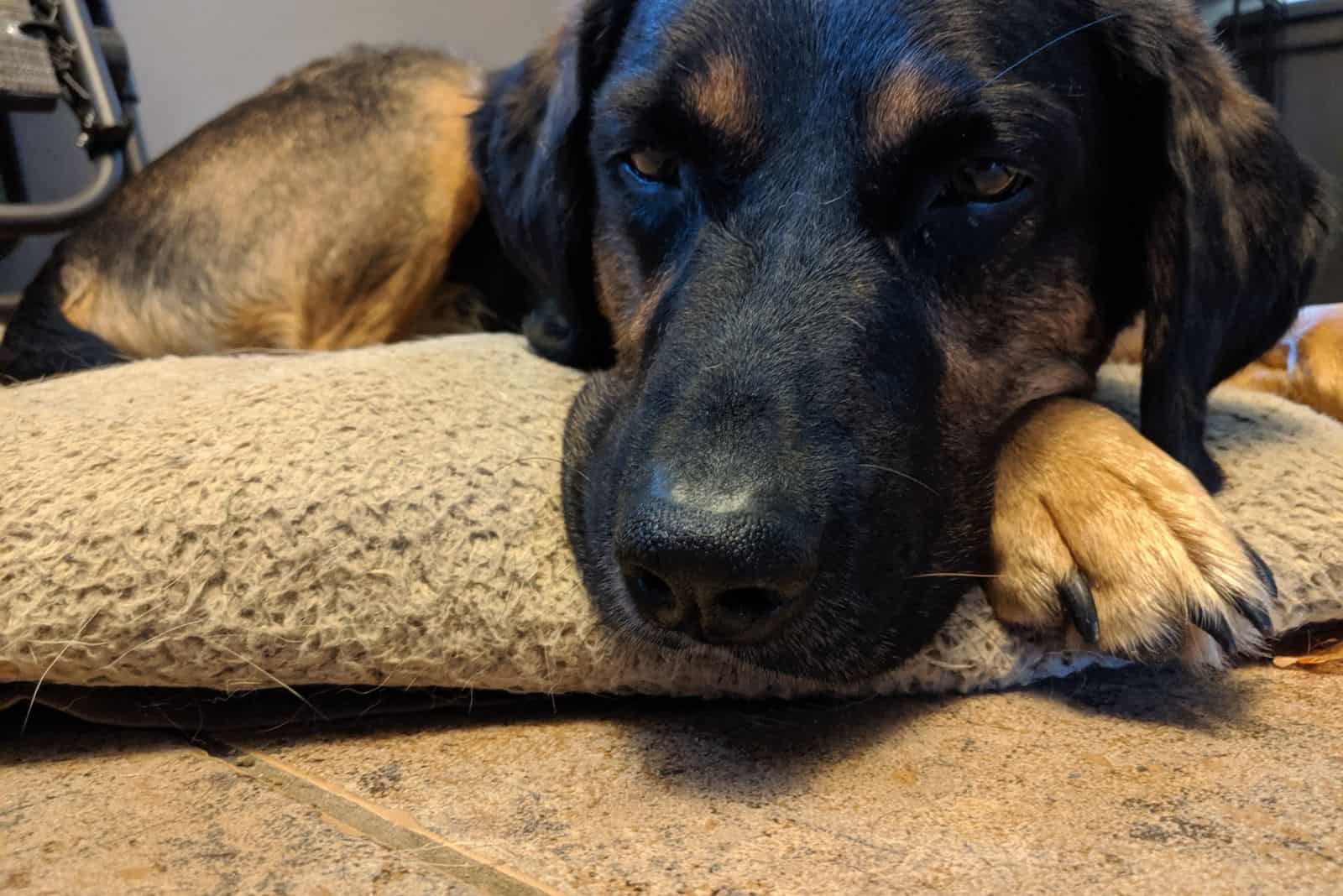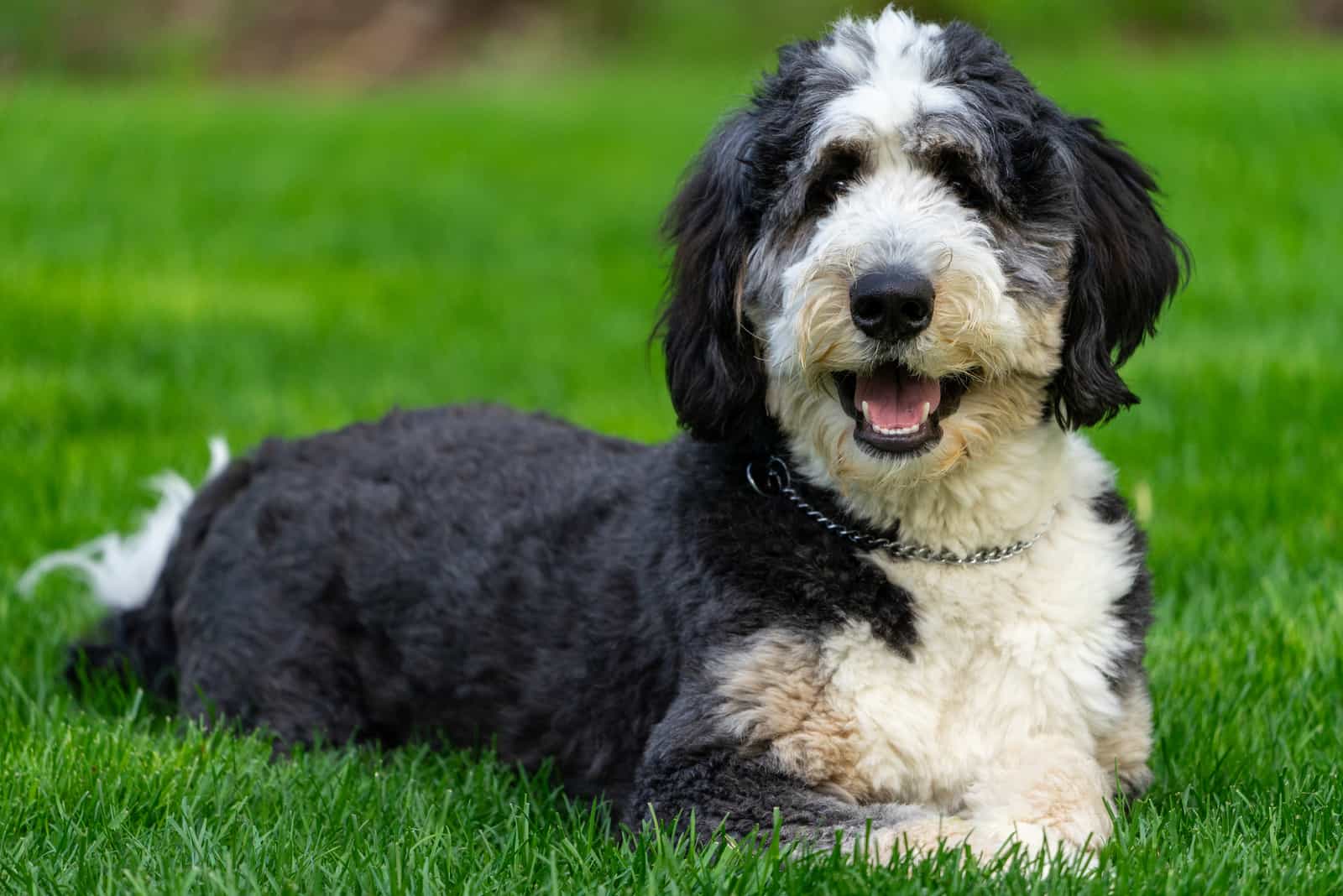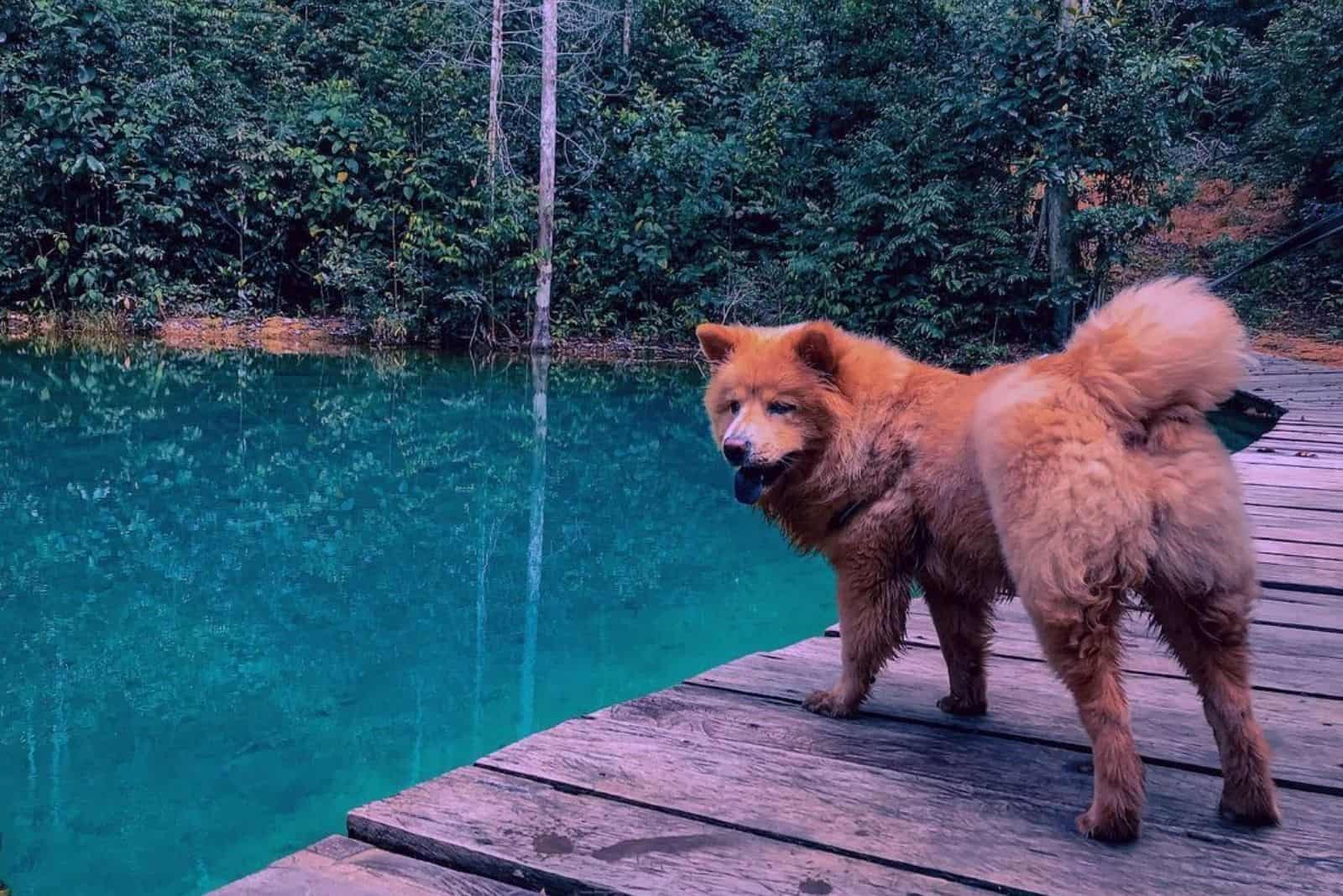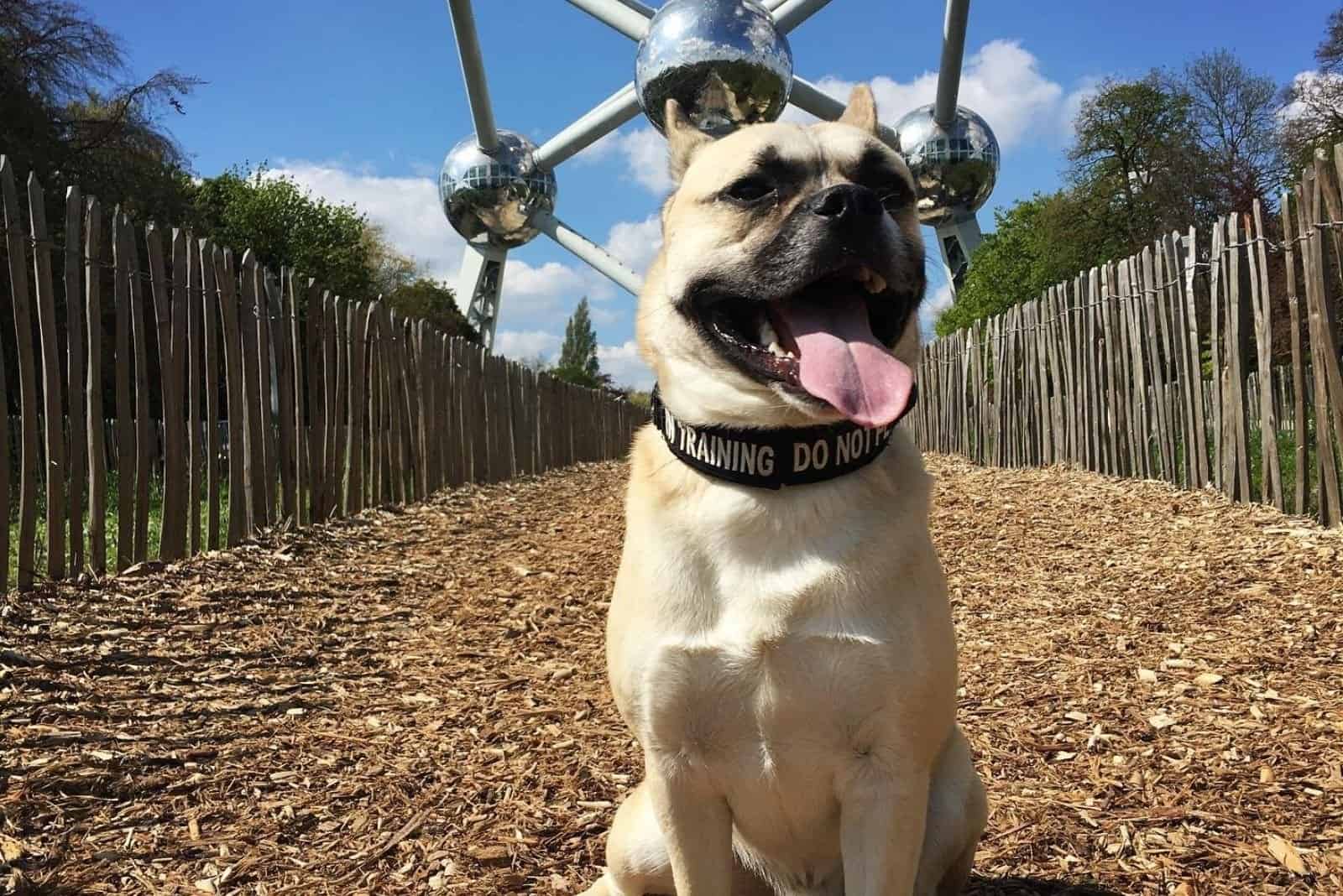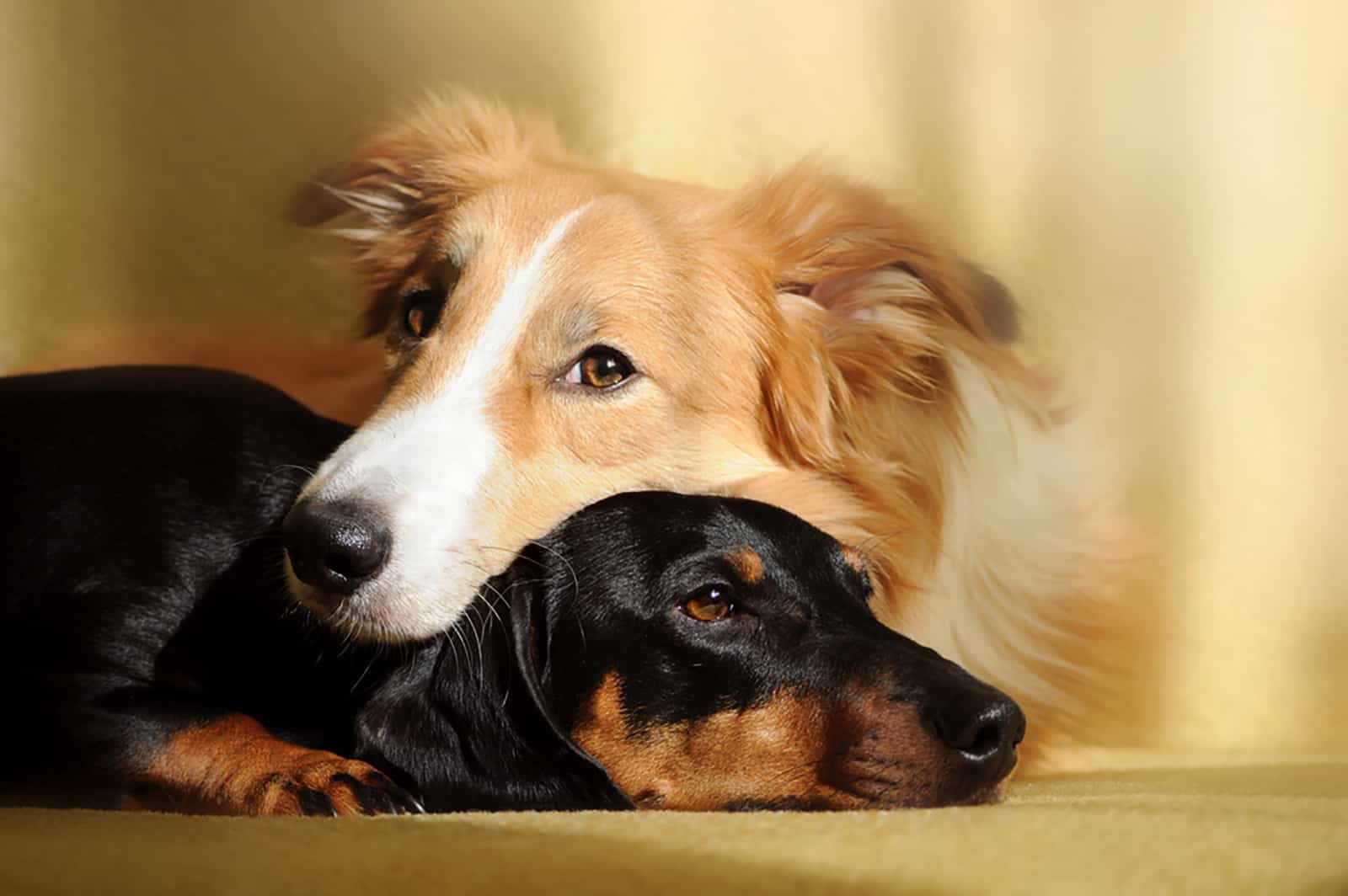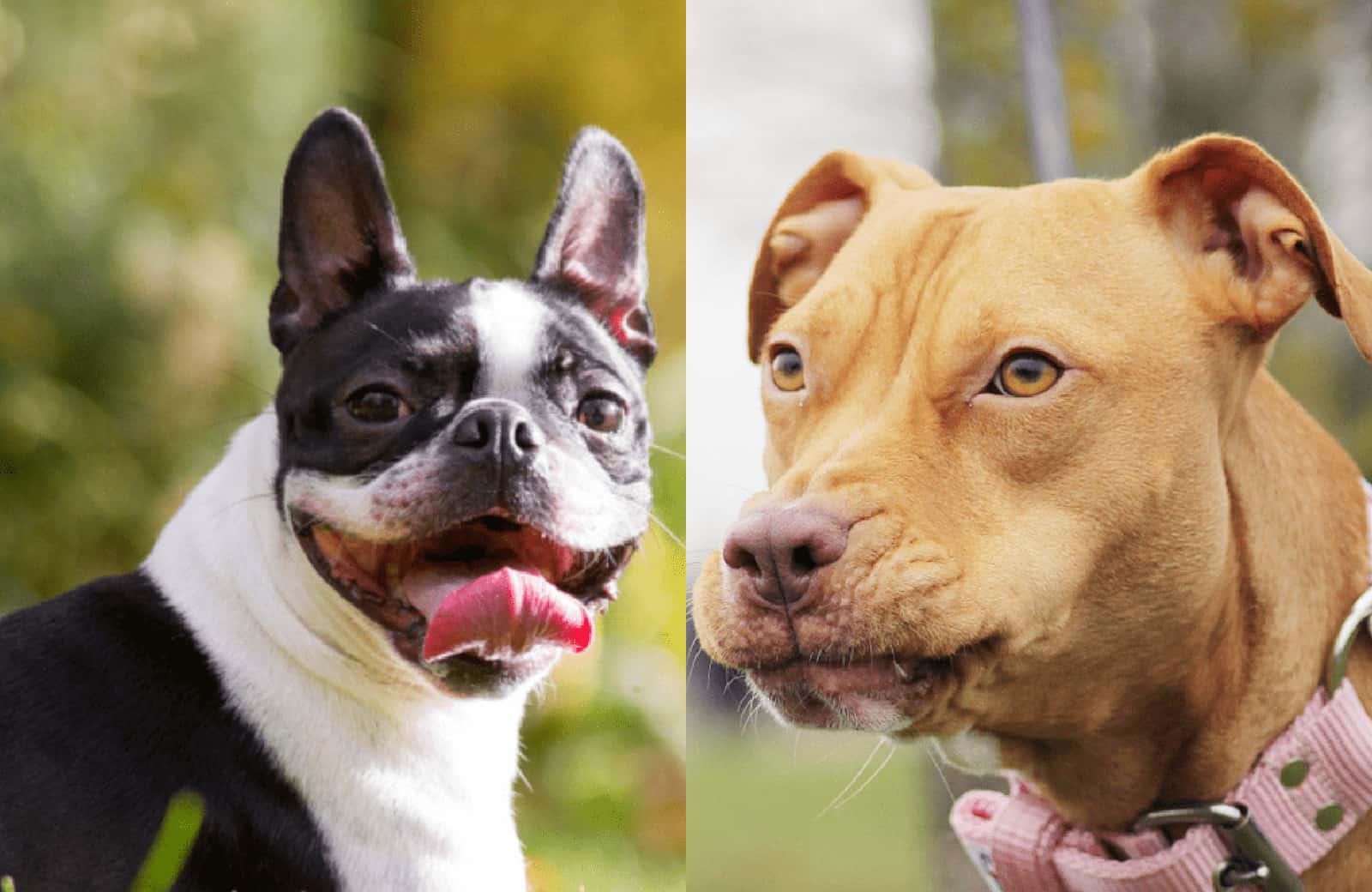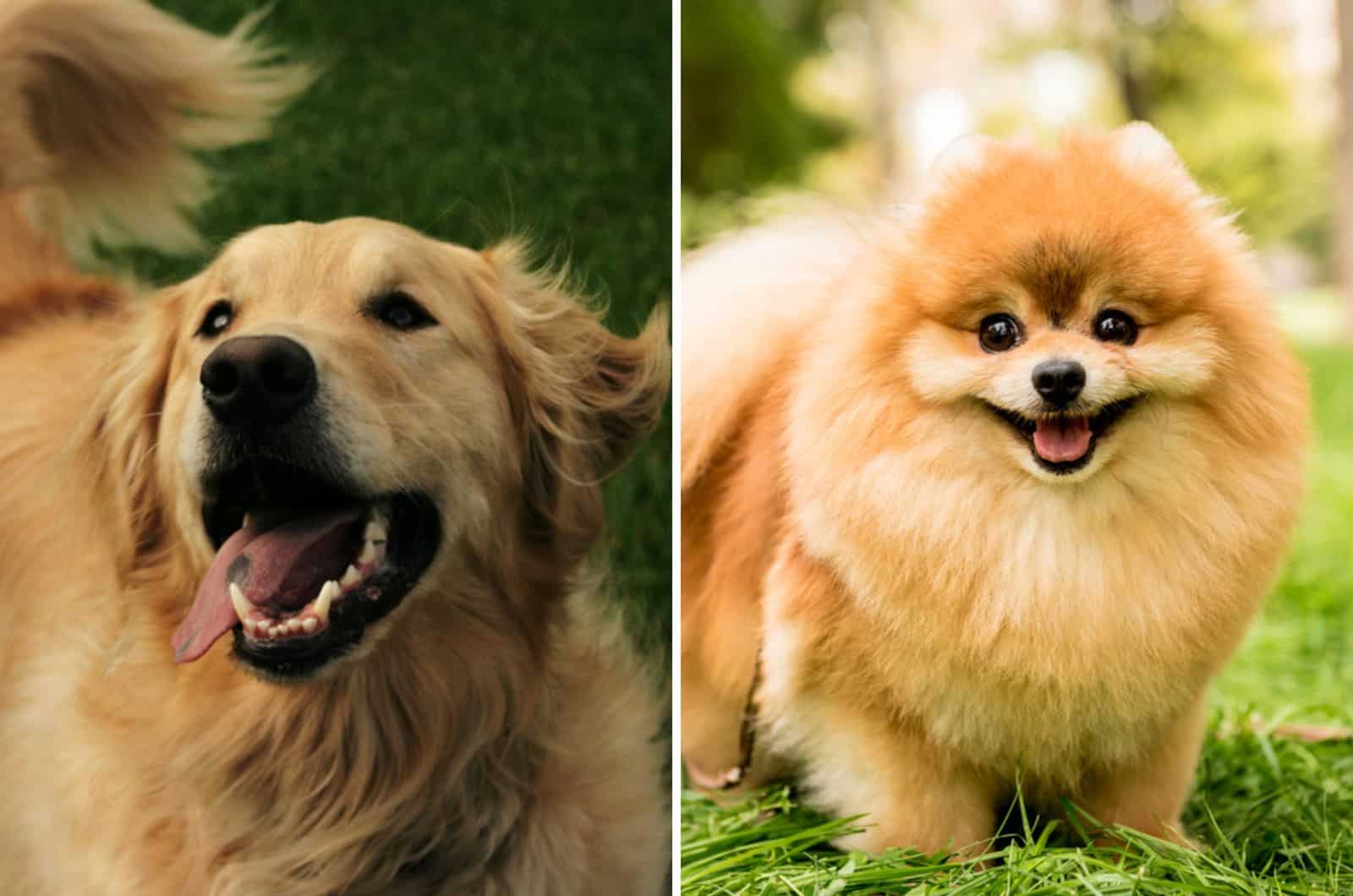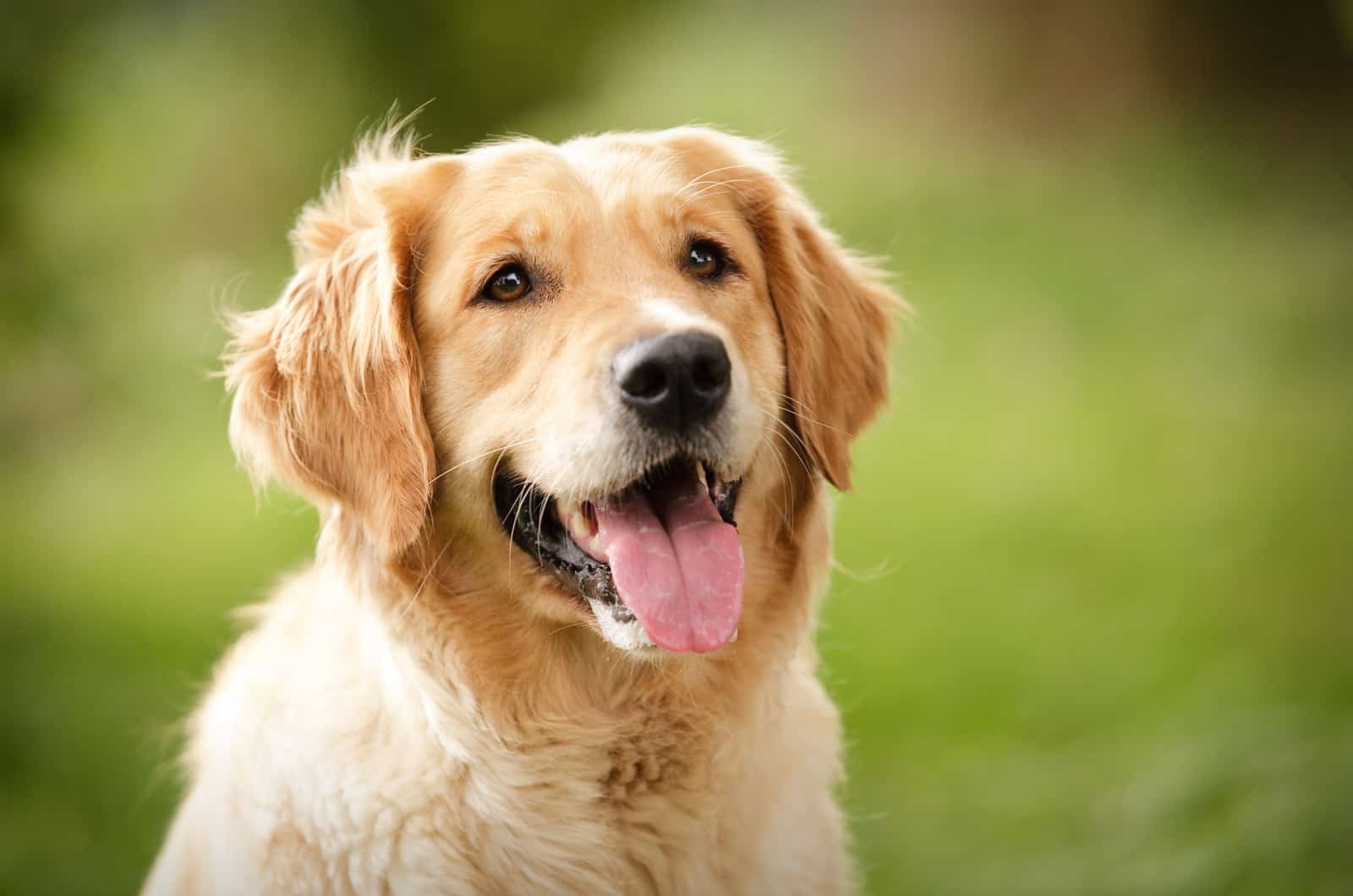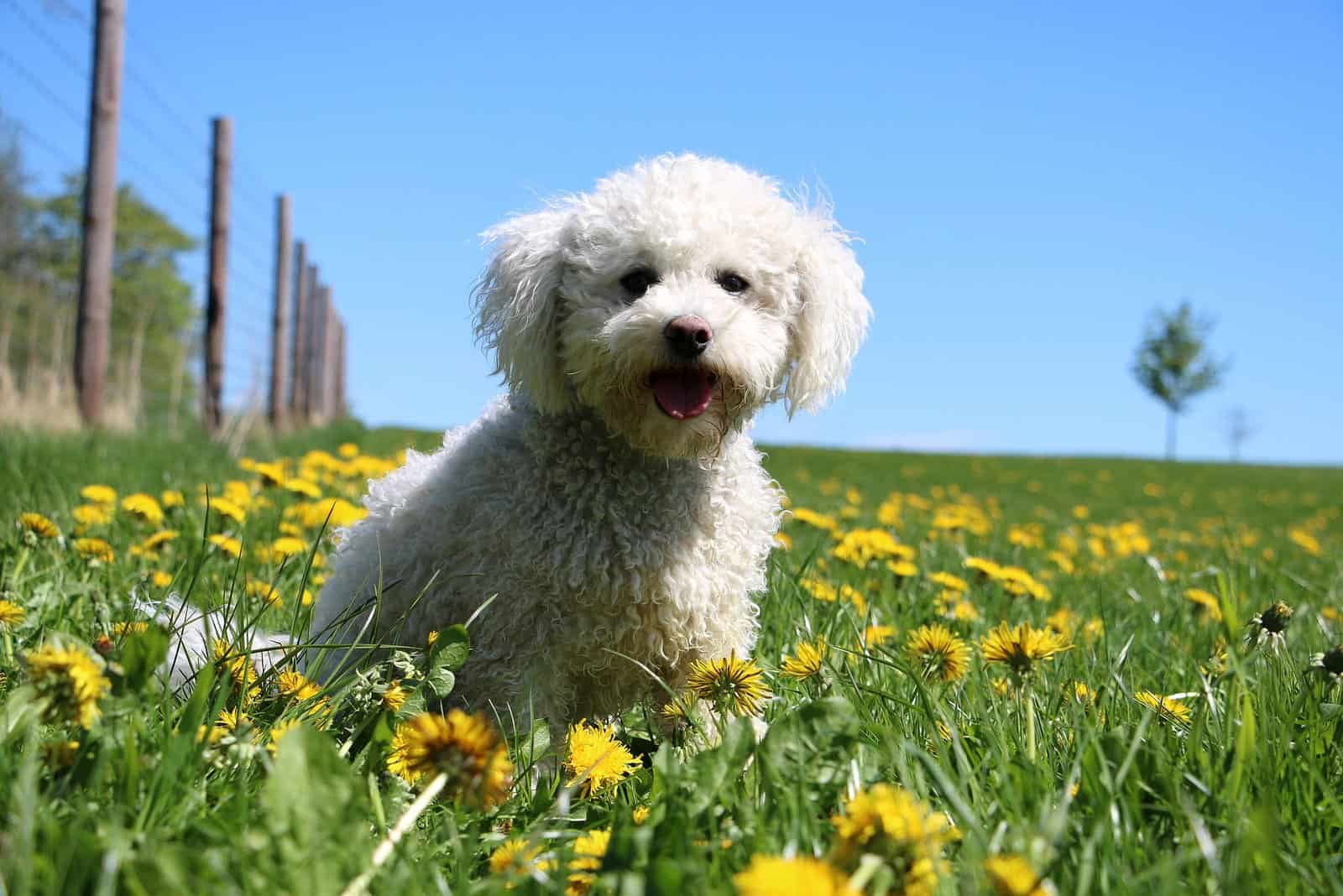Is it a curse or a blessing to have so many wonderful designer dogs? These pooches are crossbreeds of popular dogs we all love. That makes us love their offspring even more, including the teacup Pomsky!
We love our purebred dogs, our Chihuahuas, German Shepherds, Shih Tzus, Poodles, Bulldogs, and others, but we love their crosses even more.
Yes, you’re on the right track: the teacup Pomsky is the tiny but cutest version of regular Pomskies. This mini Pomsky is the IT dog at the moment. Everyone’s going crazy about this unusual mixed breed.
Let’s see why it’s all the rage!
How Do Teacup Pomeranian Breeders Produce These Dogs?
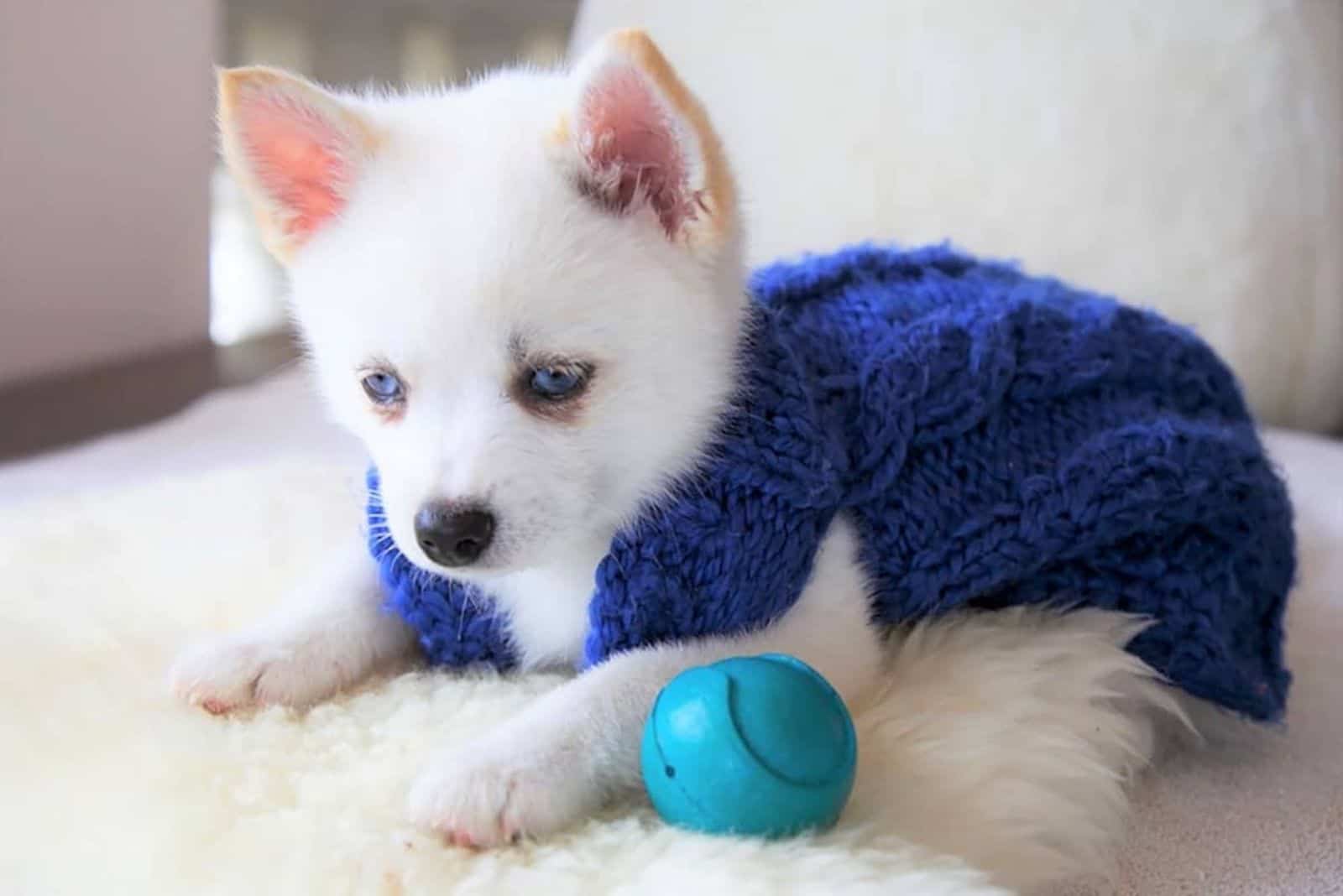
Teacup Pomskies are the result of crossing runts from litters of purebred Pomeranians and purebred Huskies. There are always some Pomeranian puppies that are tinier than others, as well as Husky puppies smaller than other littermates. It’s the way nature works.
However, producing teacup Pomskies has nothing to do with nature. To get these dogs, the breeders must use artificial insemination. The significant difference in the sizes of the parent dogs is the main reason for it.
Using this breeding method may cause health issues and a shorter lifespan for the resulting littermates.
Many dog lovers claim raising such puppies is unethical. But still, producing healthy teacup Pomskies is possible, as long as the right breeding method is used.
Are Teacup Pomskies Recognized By Kennel Clubs?
The American Kennel Club (AKC) and similar dog clubs don’t recognize the Pomsky as a breed. It’s not because of their compact size; it’s that they’re a cross between two purebred dogs.
Still, the American Pomsky Kennel Club (APKC) is working hard to get the Pomsky recognized as a breed.
Getting the Pomsky recognized by important dog societies would open many doors to these mixed breed puppies.
Teacup Pomsky Full Grown: Appearance
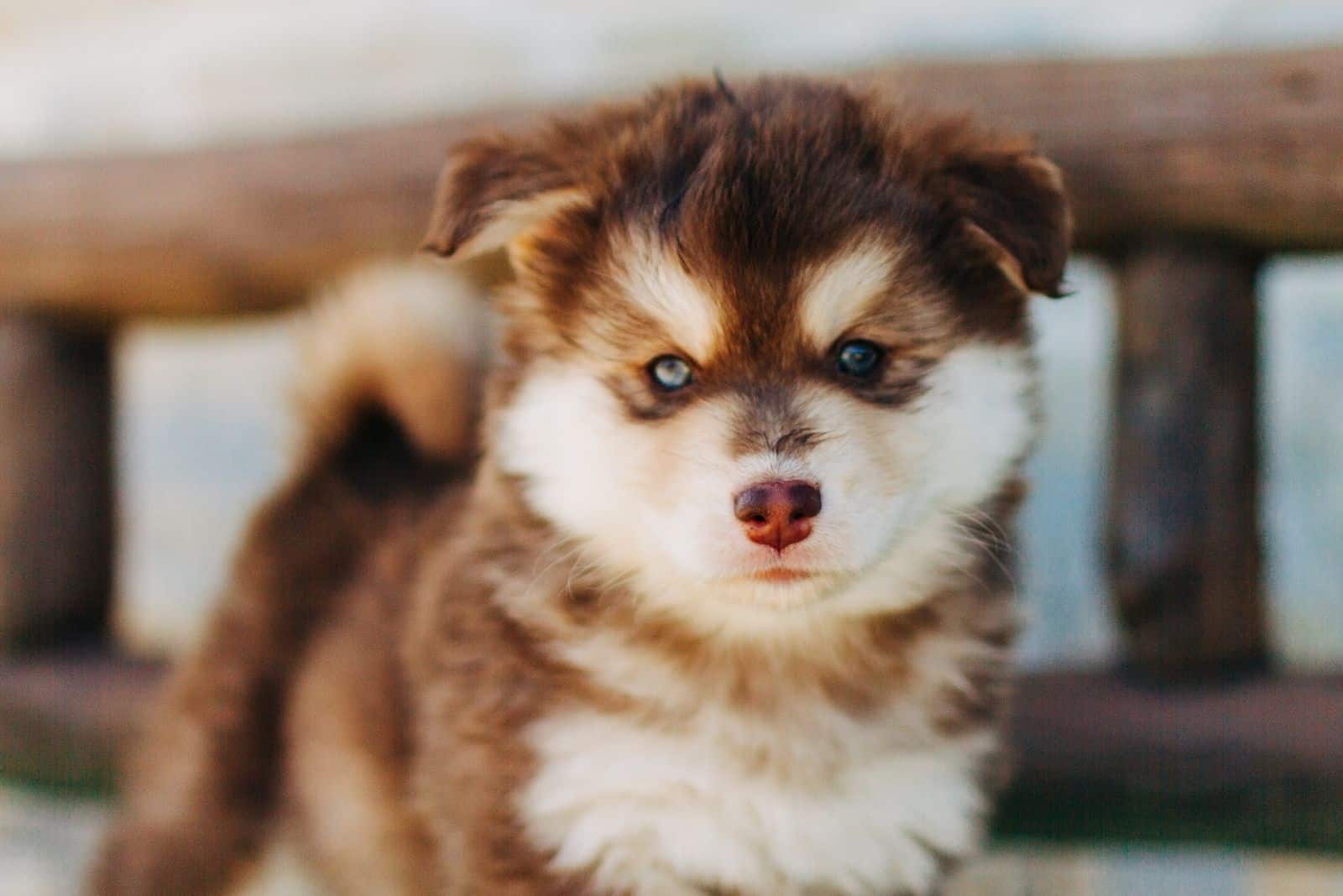
The teacup Pomsky, also known as the toy Pomsky, miniature Pomsky, and the Pocket Pomsky, is often confused with a regular teacup Pomeranian. Some even go so far as to claim there’s no such thing as a teacup Pomeranian or teacup Pomsky since this is already a small dog.
Because of their small size, the teacup Pomsky is a delicate dog. Being a cross of a Pomeranian and Siberian Husky, a large dog breed, doesn’t mean much when it comes to the puppy’s size.
Therefore, you must be gentle when handling a teacup Pomsky. If they are dropped or stepped on, there’s a huge risk of fractures and dislocations. Such injuries lead to extreme pain and potential health problems. Some cases of fractures can even end fatally!
The Teacup Pomsky’s most prominent feature is its stunning coat. Their coat is textured and thick, usually described as fluffy. There’s a wide variety of coat colors, including sable, beaver, merle, red, lavender, orange, cream, brindle, chocolate, wolf sable, as well as black Pomskies and white Pomskies.
There’s also a variety of eye colors, including brown, hazel, amber, green, and blue eyes.
You can say there’s a Pomsky to suit everyone’s taste! Let’s take a look at some of the most unusual Pomsky colors.
A sable teacup Pomsky has black-tipped hair with a brown, black, or silver background. What makes this color option so appealing is that it combines several shades.
The black Pomsky can have its color distributed either in one area (for example, on the face) or throughout the whole body. The main culprit for thish coloring is the Husky parent.
The cream color isn’t a common one for teacup Pomskies. However, if the puppy has many Pomeranian traits, it could result in this tone.
The teddy bear color, or black and brown, is a popular option that makes the teacup Pomskie look like a fluffy teddy bear.
Here’s a general overview of the teacup Pomsky’s traits:
| Physical | Personality |
|---|---|
| small size | adaptable |
| fluffy coat | friendly |
| light in weight | easy to train |
| small in stature | intelligent |
| variety of colors | loves his family |
Pomsky Puppy: How Big Do They Get?
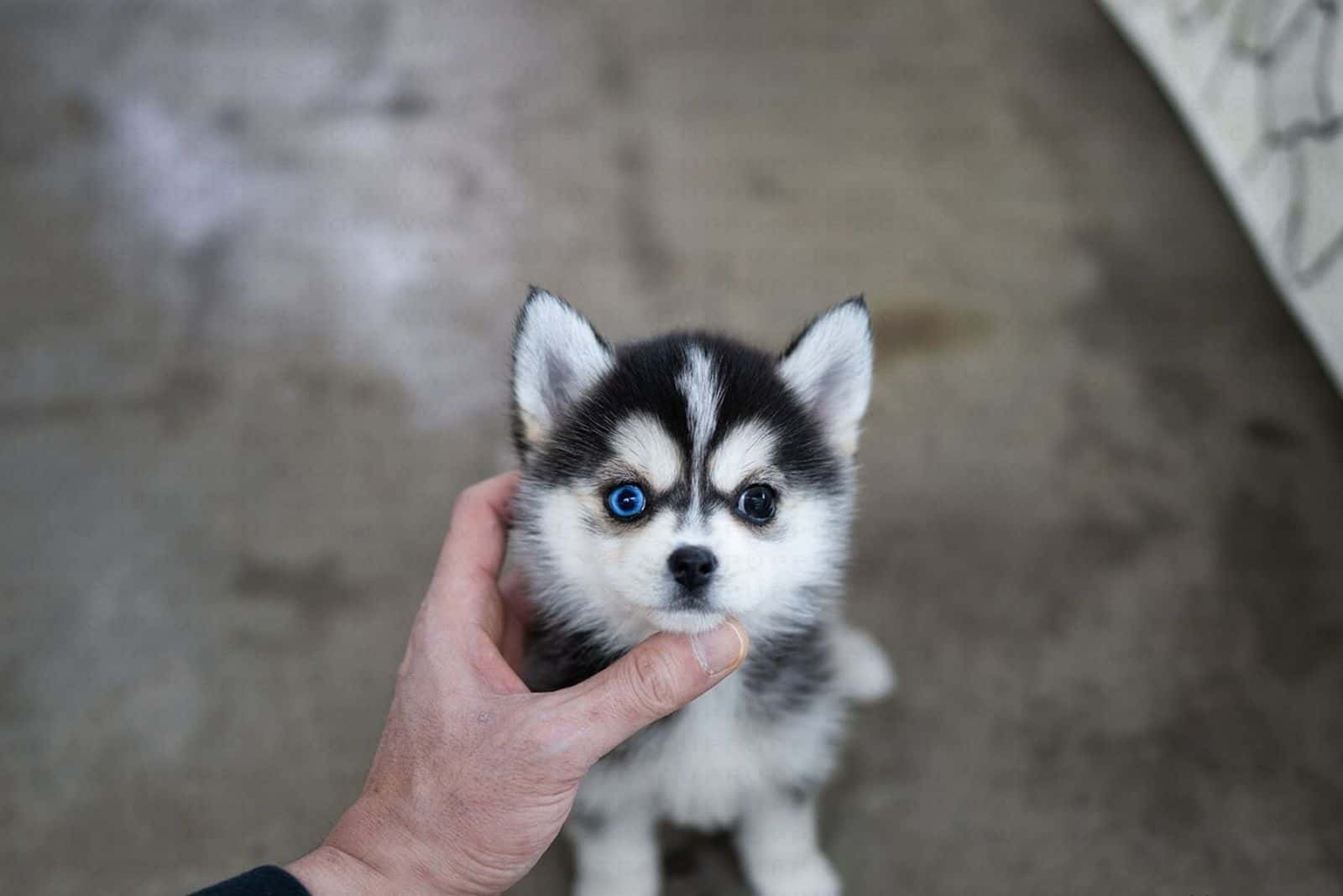
According to the American Kennel Club (AKC), a Pomeranian or one of this breed crossed with another dog, including the Pomsky, is a teacup puppy if it weighs less than seven pounds. However, many Pomsky cases show an even smaller weight.
The Pomsky can also weigh as little as three pounds. Such dogs, between three and seven pounds, are categorized as toy dogs by the AKC.
The height, weight, and size of a teacup Pomsky will depend on the lineage. Larger parents mean a larger Pomsky puppy rather than a teacup Pomsky.
The teacup size is usually achieved by breeding runts of the litter using unethical practices by starving a dog to stunt its growth. Such an approach leads to many health issues in the litter.
Generally, the teacup Pomsky is a pocket-sized dog that doesn’t grow taller than 10 inches and weighs between 3 and 8 pounds.
Breeders ensure teacup model dogs by calculating the height and weight of the parents and making sure it’s up to teacup Pomsky standards.
See Also: Pomsky Growth Chart: The Definitive Pomsky Size Guide
The Siberian Husky & Pomeranian Mix: Temperament Features
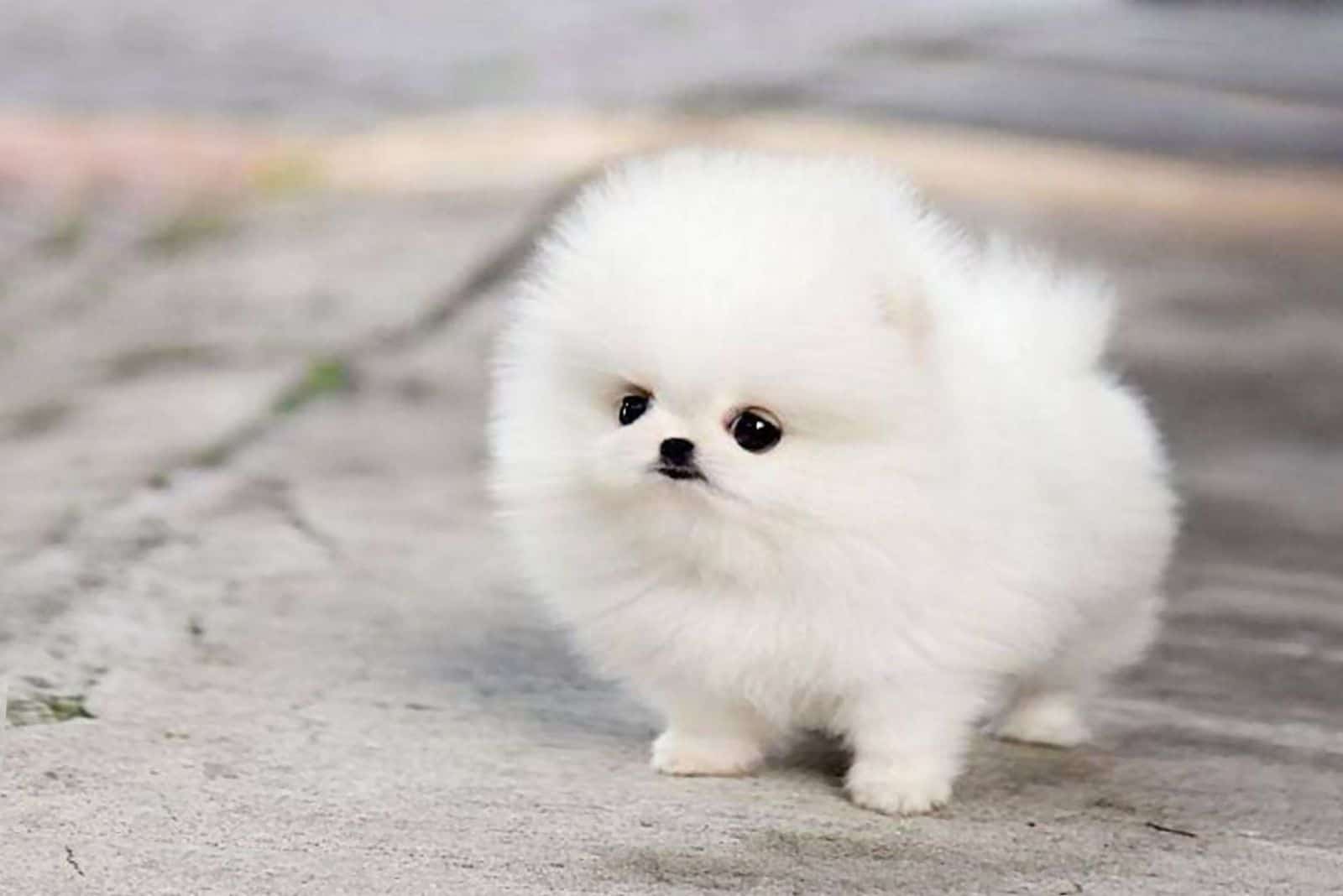
What kind of temperament your teacup Pomsky will have depends on the temperament of its parents. If the parents are sociable and well-behaved, there’s a big chance their puppies will act the same way. The same can be said for any negative trait.
Let’s take a look at the general overview of the Pomeranian and Husky temperament:
| Pomeranian | Husky |
|---|---|
| intelligent | needs a dominant trainer |
| energetic | easily bored and needs stimulation |
| stubborn, especially in training | playful |
| protective of loved ones | stubborn |
| barks a lot | good for smaller households |
| overall great for families | good with kids |
When mixed together, the Pomeranian and Siberian Husky create Pomsky pups with the following traits:
• sociable
• energetic
• non-aggressive
• trainable
• affectionate
• protective
• intelligent
Pomskies make great pets for families, but only for those with bigger kids. Smaller children might accidentally hurt them. Also, these pups get along great with strangers and other animals, exactly because of their non-aggressive nature.
Lifespan: How Long Do Teacup Pomskies Live?
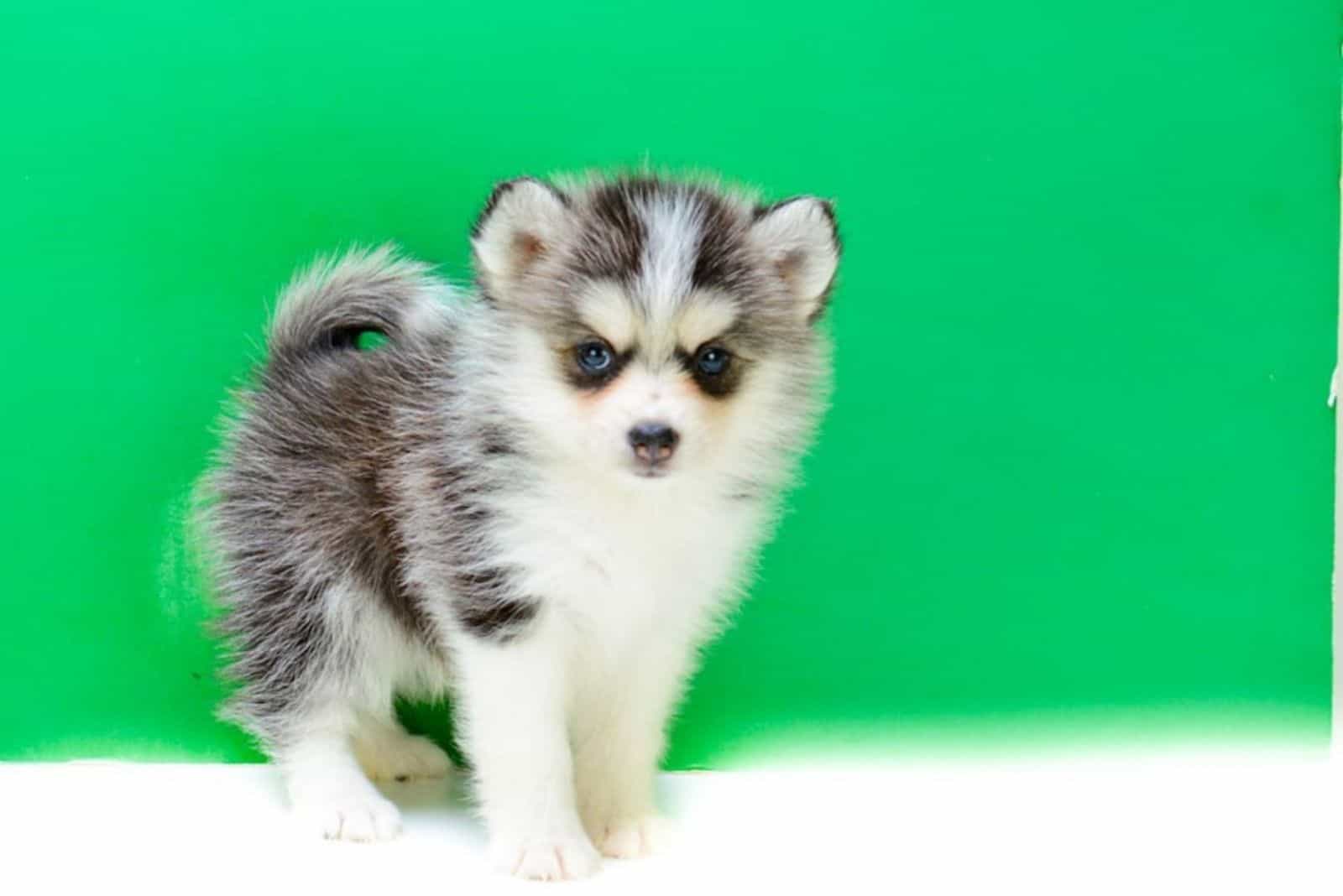
Are you seeking for a buddy that will stick around for a while? Choose a Pomsky! They’re great for owners looking for long-term friends since their lifespan is from 10 to 15 years.
There’s a common misconception that teacup dogs have a short lifespan. This is absolutely wrong. The lifespan of a teacup Pomsky depends on the breeder and the dog’s lineage.
If a breeder uses unethical approaches and breeds dogs with health issues, there’s a huge chance the littermates won’t live for long.
But, breeders who raise teacup puppies the right way and take care of the parents’ health will have puppies with a longer lifespan.
In addition, regular visits to the vet and proper nutrition improve the quality of life and longevity.
Teacup Pomsky Puppies: General Health Issues
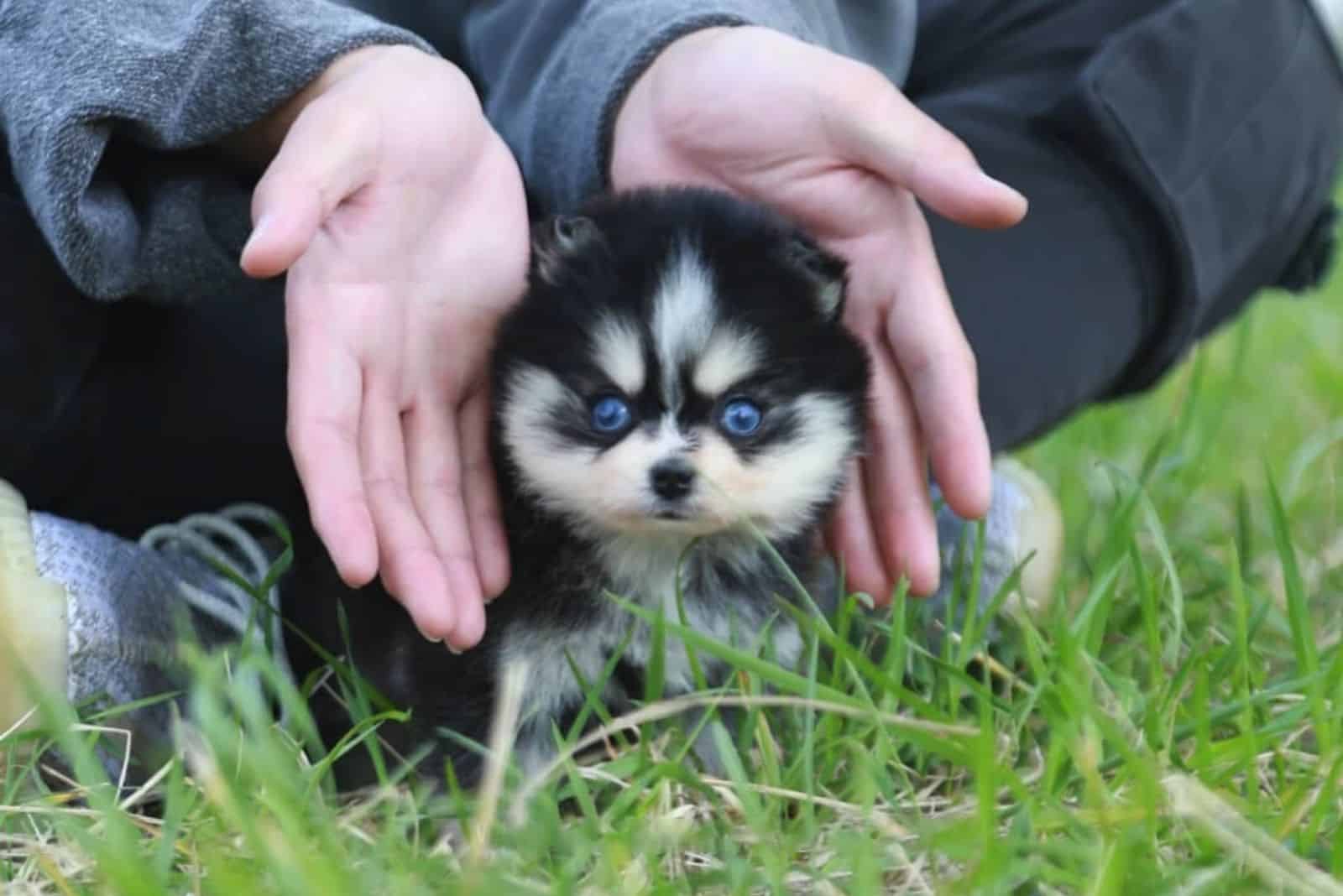
Every teacup Pomsky owner must be aware of the many health risks this dog breed has. For example, the Pomsky may easily break a bone and get injured during rough playtime. It’s because they’re so tiny!
Also, because of the nature of mixing small and larger breeds to produce teacup puppies, there is a high risk of congenital disabilities that affect the puppies’ general health status. When owning a teacup Pomsky, being aware of their potential health risks is essential.
These are the common health problems of teacup Pomskies:
Collapsing tracheas. Also known as the “goose-honk,” this condition starts with a dry cough that must be treated by a vet asap before it turns into further respiratory problems.
Black skin disease. There are no signs of this disease until the dog turns two years old. The fur then starts to thin and fall out. Still, dogs suffering from this disease can lead a normal life with lots of skin protection.
Luxating patella. A condition also known as a dislocated kneecap. It happens because of the dog’s small build. The kneecap slides out of place and makes the dog limp when he walks. There are four grades of this condition, and the most severe one is when the dog’s socketed groove is shallow or completely gone.
Why Is Breeding A Pomeranian Husky Mix So Controversial?
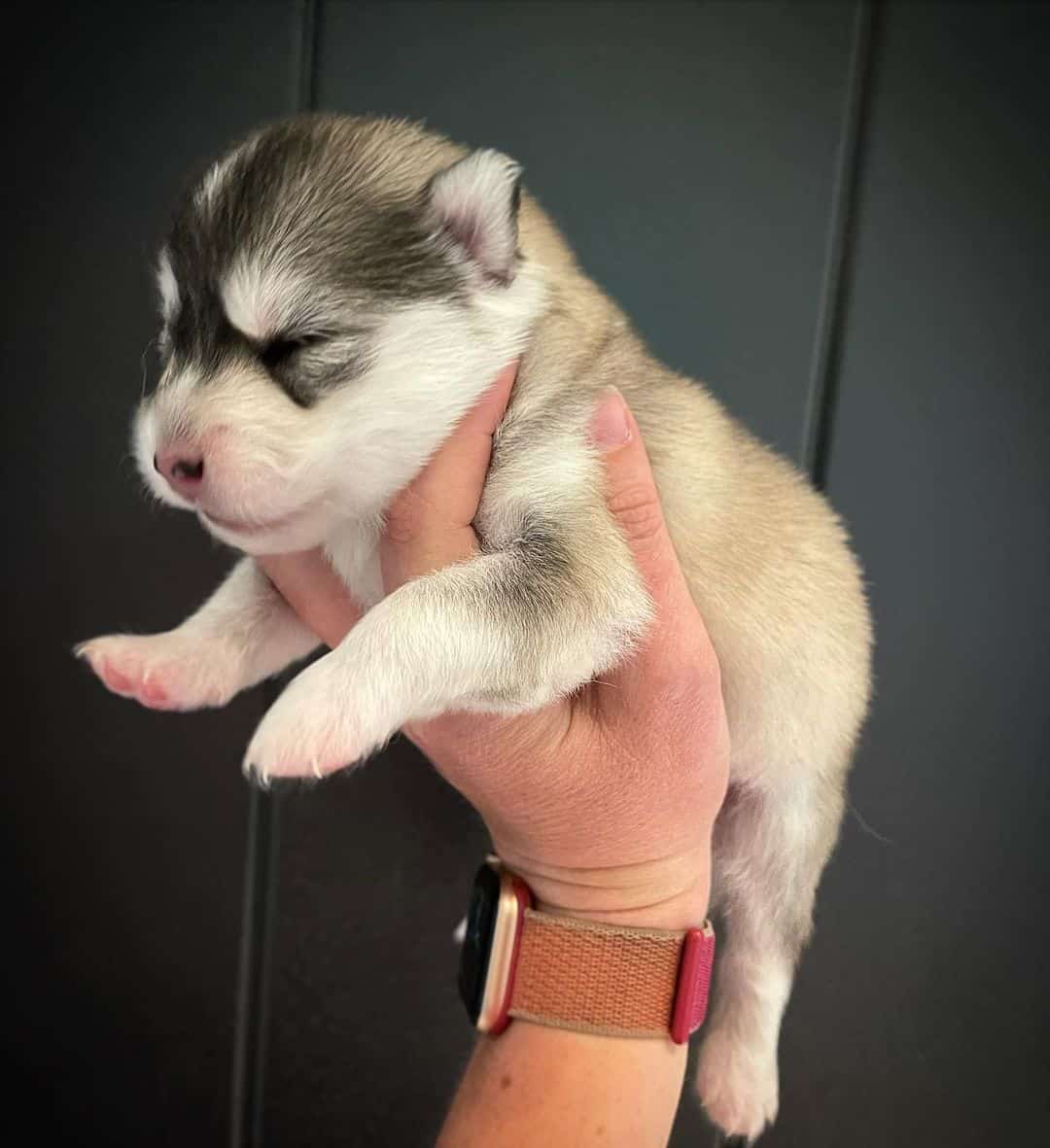
Photo from @tkpomskies
First off, many dog lovers find the breeding process of the teacup Pomsky, which is artificial insemination, to be controversial. They claim such dogs are not “organic” and carry a high risk of health issues.
Besides that, many pet owners put health above achieving the teacup size. They strongly oppose teacup puppies just because they’re trendy at the moment.
The biggest downfall of this breed will happen when their popularity and the demand fades, and the dogs are surrendered to shelters because some new designer breed becomes trendy.
Taking Care After Your Teacup Pomsky Puppy
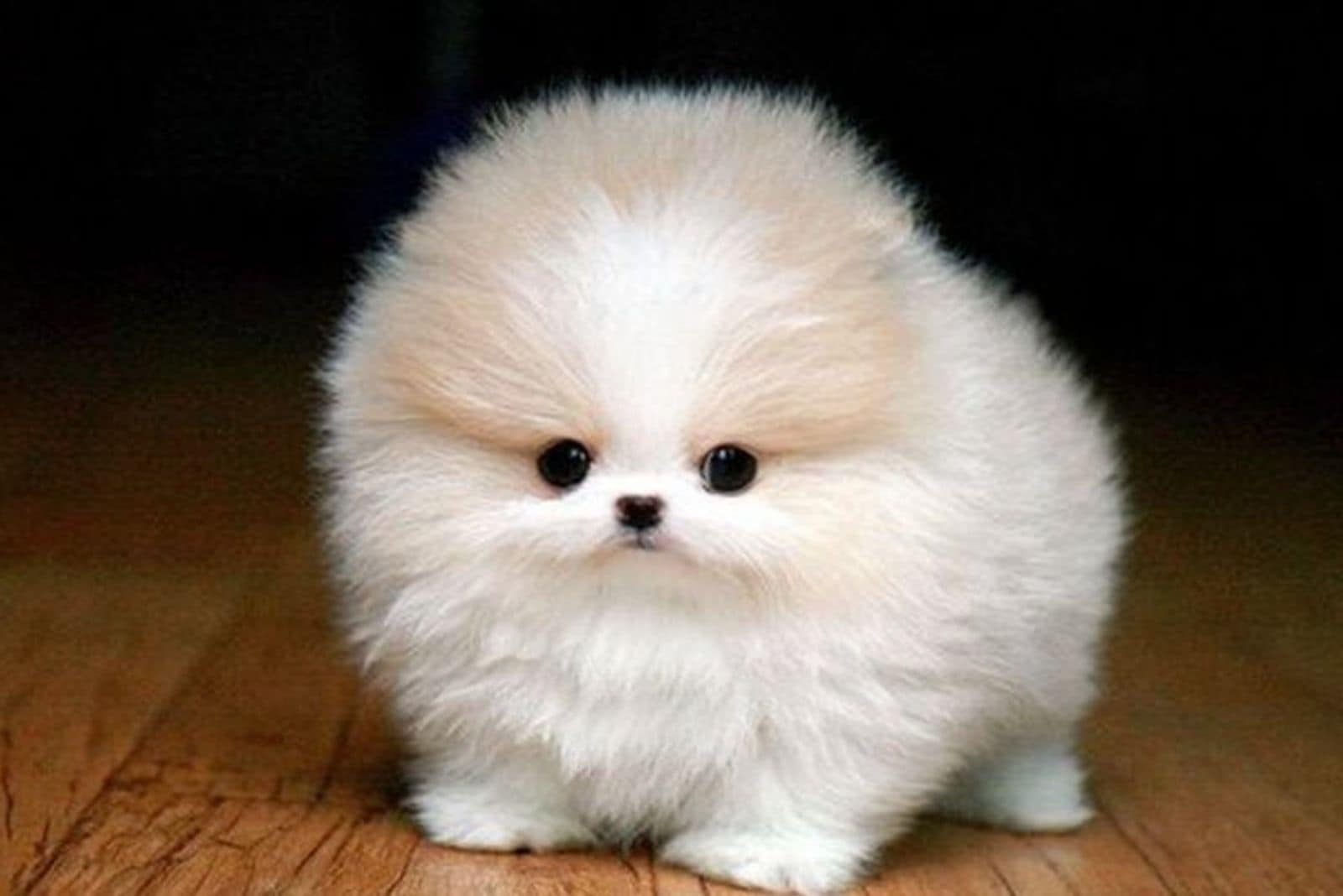
A teacup Pomsky should have a diet that satisfies their energy needs. However, not all food in the dog store will do so. Kibble brands that don’t use food fillers but only regular ingredients with added vitamins and minerals, can help your teacup Pomsky to have good nutrition.
You need to make sure your teacup Pomsky gets enough food because they have an exceptionally fast metabolism. Schedule three meals a day and squeeze in a few snacks too!
Healthy snacks like edamame, plantains, papaya, guava, artichokes, jasmine rice, sour cream, whipped cream, Brussels sprouts, jicama, chestnuts, basil, etc. are more than welcome, but keep them at a moderate level.
Regular grooming is a must for a teacup Pomsky because of their double coat and textured fur. The right grooming process includes brushing, bathing, trimming nails, and cleaning teeth. If you skip any of these, your dog might develop health issues.
Matted fur, overgrown nails, and dental problems are just some of the issues you might face if you don’t brush or clean your teacup Pomsky.
Teacup Pomskies have an energetic nature that requires proper daily exercise. Don’t worry – it will only take 30 minutes a day to keep your Pomsky active and stimulated. Speaking of stimulation, give them lots of toys and puzzles that will keep them occupied when you’re not around.
We can’t stress enough that you must avoid rough activities to prevent possible injuries.
Training the teacup Pomsky should start as soon as possible. The earlier you start, the bigger your chances of having a well-behaved dog.
Since teacup Pomskies are intelligent and energetic, they make easily trainable pets. However, some of them might inherit the Poms’ stubbornness, making it feel they’re impossible to train. This is when a calm and patient approach helps.
Training doesn’t only make your dog obedient – it helps you two create a bond.
Since the teacup Pomskies have a high risk of developing health issues, regular checkups at the vet are a must. Health screenings, vaccinations, and preventative care are the path to good health.
Grooming Your Teacup Pomsky The Proper Way
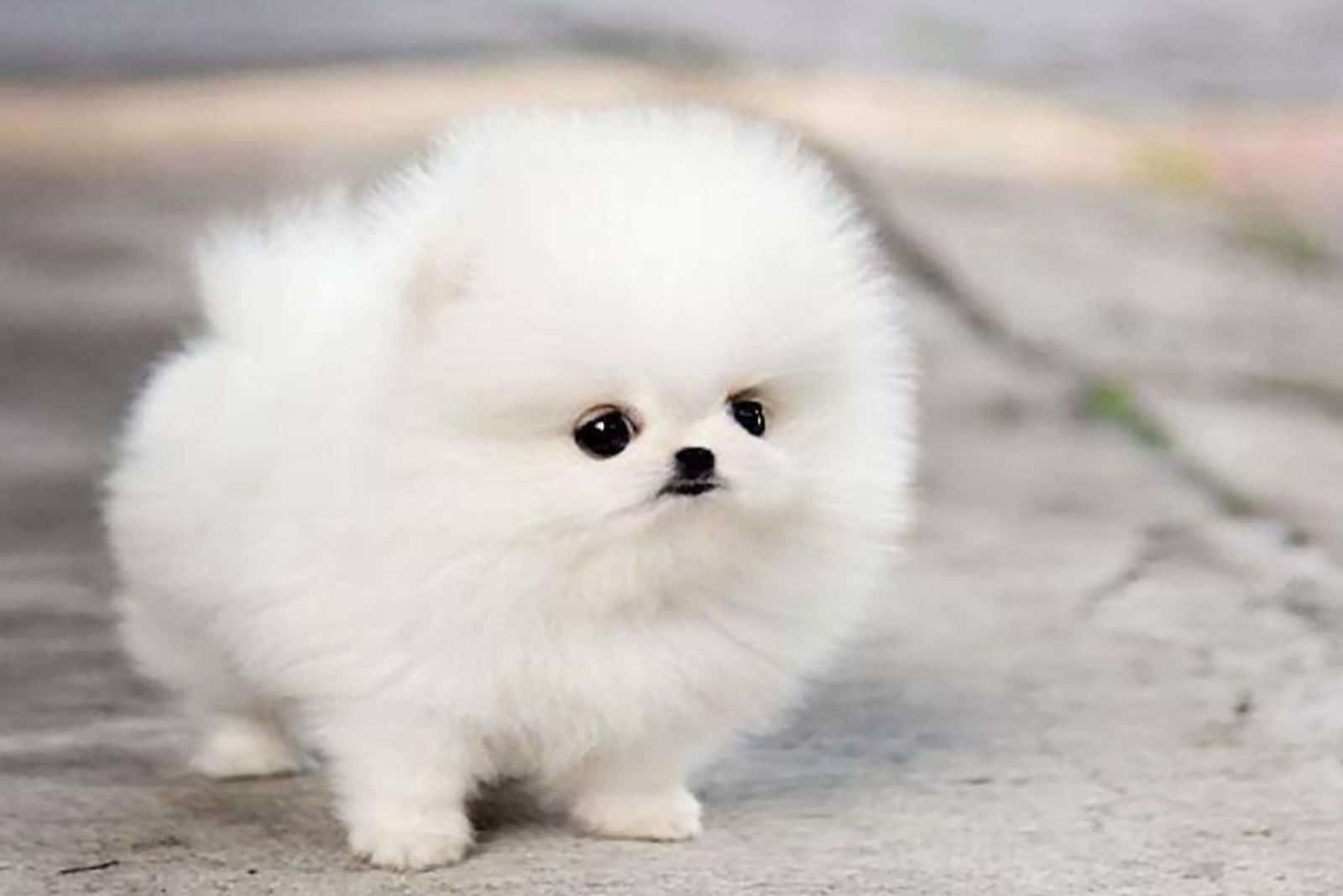
Teacup Pomskies require constant care. Some of the grooming tasks should be done on a daily basis, while others are usually weekly or monthly tasks.
Let’s see what those grooming tasks are:
| Daily | Weekly/monthly |
|---|---|
| wipe the eye area | spot cleaning |
| brush the teeth | apply pawwax |
| baths (3 weeks) | |
| cleaning ears (6 weeks) | |
| nail trimming (6 weeks) |
Wiping the Pomsky’s eye area should be a daily task for the following reasons:
• To remove tiny particle debris that clings to the hair on the face and around the eyes as this debris causes irritation. Some debris may even scratch the cornea, like tiny bits of food or crusted rheum.
• To help prevent tear staining, those reddish or brownish stains you see under the eyes, you need to clean off dried basal tears, which contain porphyrins that leave stains.
A tip from a pro is to clean your Pomsky’s face after meals, or at least once a day. Make sure the area is completely dry, not damp. Otherwise a red yeast infection may develop and contribute to the staining.
Another daily task you shouldn’t skip is brushing your dog’s teeth. A dog’s healthy gums and teeth have a direct impact on its overall life span.
Without proper dental care, dogs can develop tooth decay, gingivitis, periodontal disease, infections, and tooth loss. The infections may spread to the sinuses or cause full-body sepsis.
The best way to prevent these conditions is to take the dog for regular veterinary check-ups and keep cleaning them at home. Many dogs enjoy the brushing and massaging sensation. Besides, doggie toothpaste usually tastes good, so this grooming task shouldn’t be problematic at all.
The gorgeous Pomsky coat needs some work to stay fluffy and soft. Brush your Pomsky two to three times a week to prevent tangles. Also, check for any matting before they get too large to brush out.
Brushing also removes any debris from the coat, pulls out dead hair, stimulates hair follicles, and provides a better outer look for your dog.
A pro tip is to use a two-level steel comb, a bubble-tip or polished-tip slicker brush, and a pin brush. Heavy shedding requires a non-rotating rake.
Proper paw care is something many dog owners don’t think about. But, when you think it through, it can only benefit your pooch. The paws suffer a lot just from walking on different kinds of surfaces. They’re prone to dryness, peeling, cracking, burns, etc.
Paw wax protection is the easiest way of keeping the paws in good shape. It creates a barrier to protect paws from grit and irritants, and it can help deal with hot surfaces. Also, the wax keeps the pads moisturized, repels allergens, and gives the dog better traction.
Baths are an important part of grooming and keeping the dog clean.
There are numerous benefits to bathing your Pomsky:
• accumulated body oils will be cleansed off
• skin health will be improved by using moisturizing products
• coat health will also be improved
• debris and fine particles won’t move further into the coat
• removes odors
• loosens dead hair for a better brushing afterward
Make sure you don’t go overboard with the baths. Bathing a dog when he’s dirty or muddy is totally fine, but let’s keep it to once every three weeks at least. It takes a few weeks for natural body oils to accumulate enough for cleaning.
If you bathe your Pomsky too often, the risk of your dog getting dry skin increases.
Combing and brushing should be done just before bathing to get rid of any dirt or irritants. Every bath should be done using a natural dog shampoo and a wash-out conditioner with a pH of 6,5 to 7,5. Towel dry the dog using the squeeze method instead of rubbing and blow dry it if necessary.
Cleaning the ears is a bit tricky. If you miss just one spot, you risk an ear infection. It’s because ears are a dark, damp area, perfectly suitable for bacteria growth. Still, there are dogs who don’t have their ears cleaned ever, but they don’t suffer from ear infections.
Cleaning the ears also depends on whether your Pomsky has excess wax, smelly ears, or any redness, itchiness, or discharge. Those are the signs of yeast infections that must be treated.
Chronic ear infections should be treated by the vet to prevent further problems.
Trimming or filing down a Pomsky’s nails is a task some owners tackle on their own. However, there are dog owners who find it’s best if a groomer handles this issue. Trimming the nails is tricky for a first-time owner, and here’s why:
Dogs have a “quick,” a blood vessel and nerve that runs down the center of the nail but not to the tip. If you cut a nail too short, it will cause pain and profuse bleeding.
Dogs usually wear down their nails by themselves, but sometimes you need to step in. Make sure you have pet nail clippers or nail files and a styptic gel or powder in case of accidental injuries.
How Much Is A Teacup Pomsky?
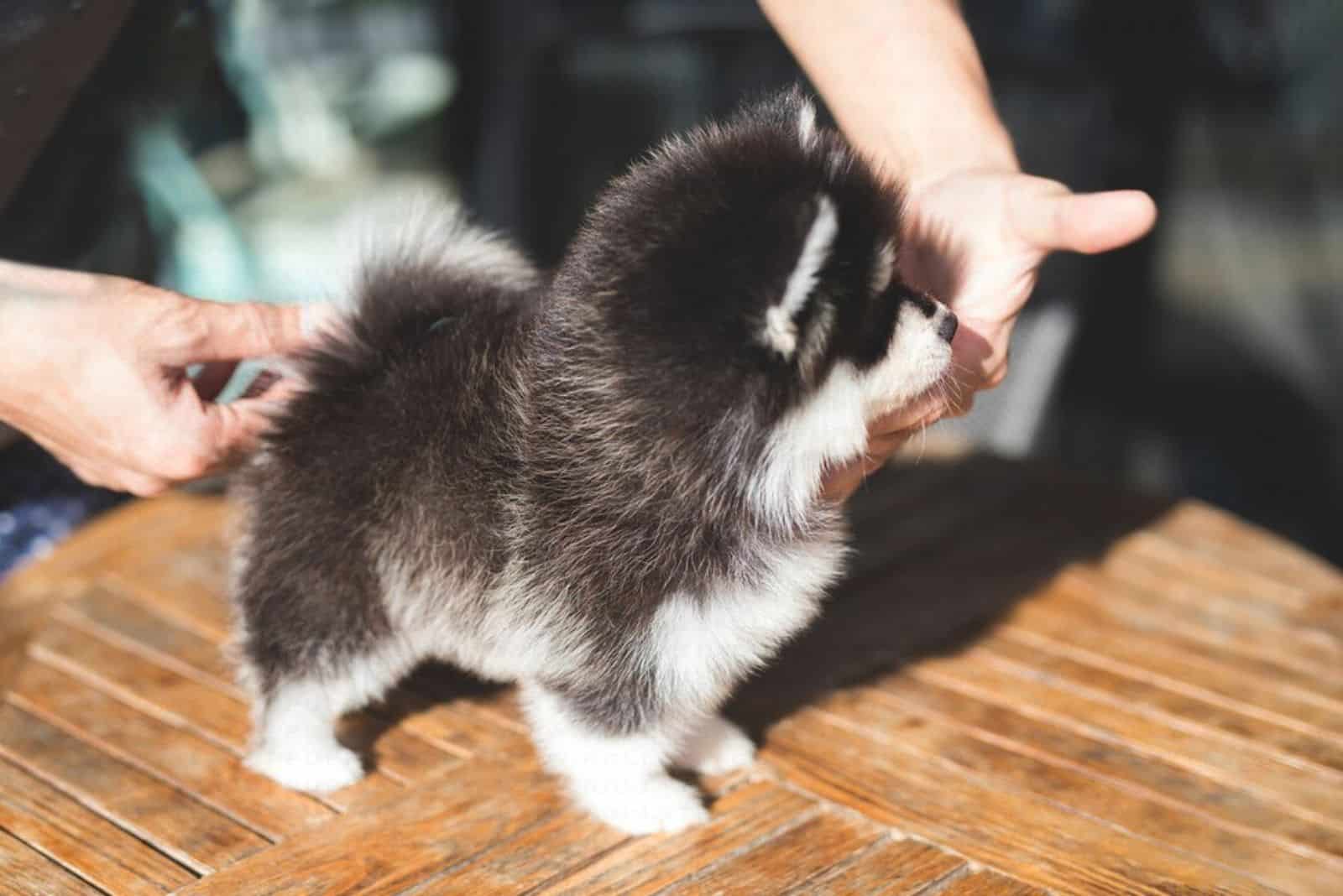
Like any other designer dog breed, the teacup Pomsky also has a designer price tag. Yes, this does mean these puppies are expensive.
A teacup Pomsky can cost anywhere between $2,500 to $7,000! Wow, such a huge price for such a tiny dog! Imagine what the price of micro teacup Pomskies would be!
But that’s not all. There are still expenses like shipping and extra adoption fees that can add up to $800.
The moral of the story? Check your financial situation before getting a teacup Pomsky. It may cost you an arm and a leg.
Teacup Pomsky Puppies For Sale… Or Adoption?
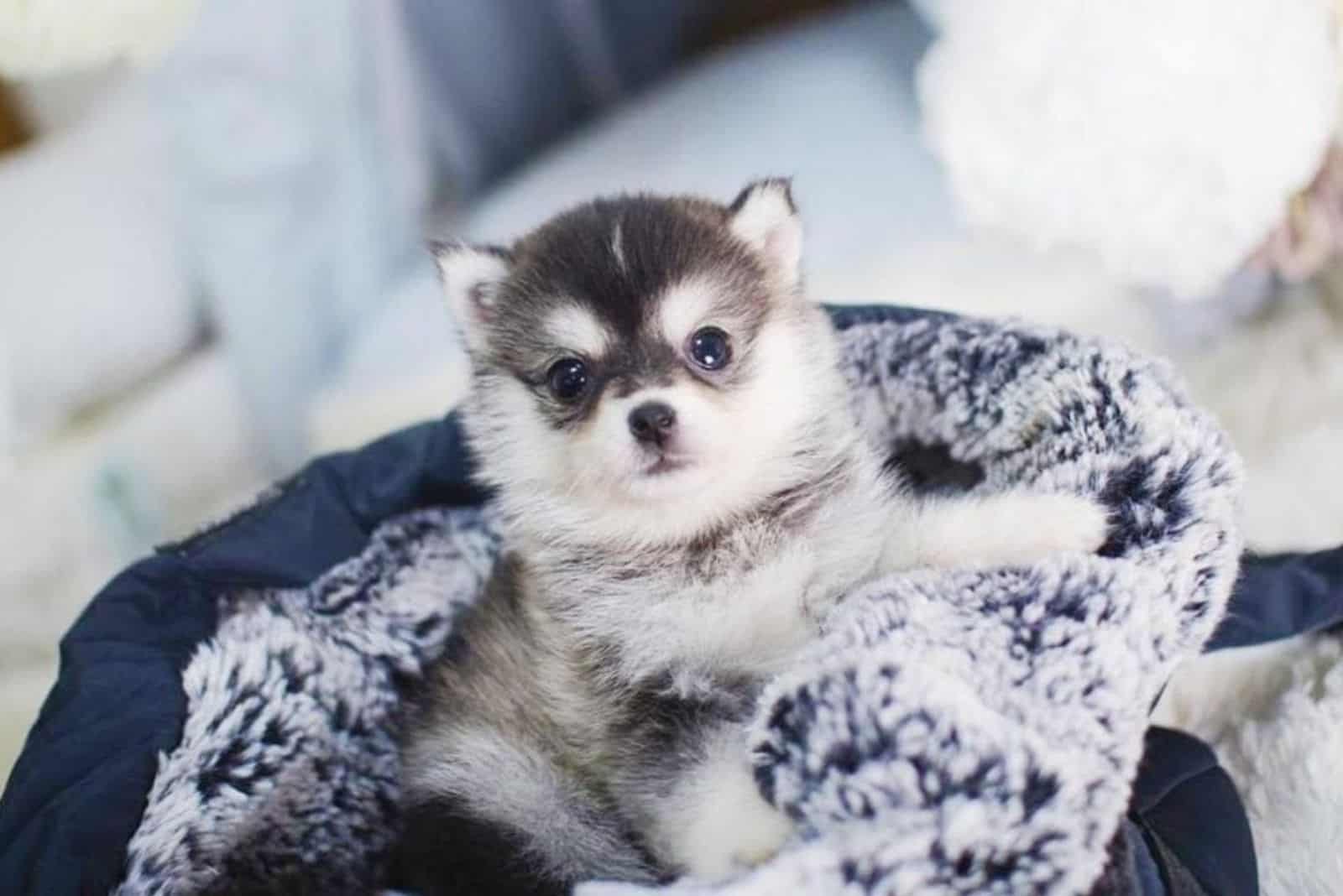
It’s always troubling to find a reliable dog breeder, especially when it comes to teacup dogs.
To set reliable breeders apart from scammers, always check their background and credibility in dog breeding. Also, they should be able to provide photos, videos, descriptions, and health clearances.
Avoid purchasing teacup puppies from breeders who don’t have good communication with you. Buying from pet shops should also be avoided because these puppies often come from puppy mills.
If you want to get a teacup Pomsky, why don’t you check out these reliable breeders:
• American Pomskys – American Pomskys is a family business with a goal to produce healthy puppies with good temperaments and characters. Google them and reach out to reserve a teacup puppy.
• Canadian Pomsky – This organization offers teacup Pomskies from $2,200 to $2,800, including health certifications, microchipping, vaccinations, deworming, and health guarantees.
• Pomsky Owners Association (POA) – This association has a list of reputable teacup Pomsky breeders. You can find necessary kennel descriptions, locations, websites, email addresses, phone numbers, or any other information that could lead you to your dream teacup puppy.
If buying isn’t an option for you but adopting is, then take a look at this:
• National Mill Dog Rescue
• International Pomsky Association
• Oregon Dog Rescue
• All 4 Paws Rescue
Owning A Pomsky Dog: Pros And Cons
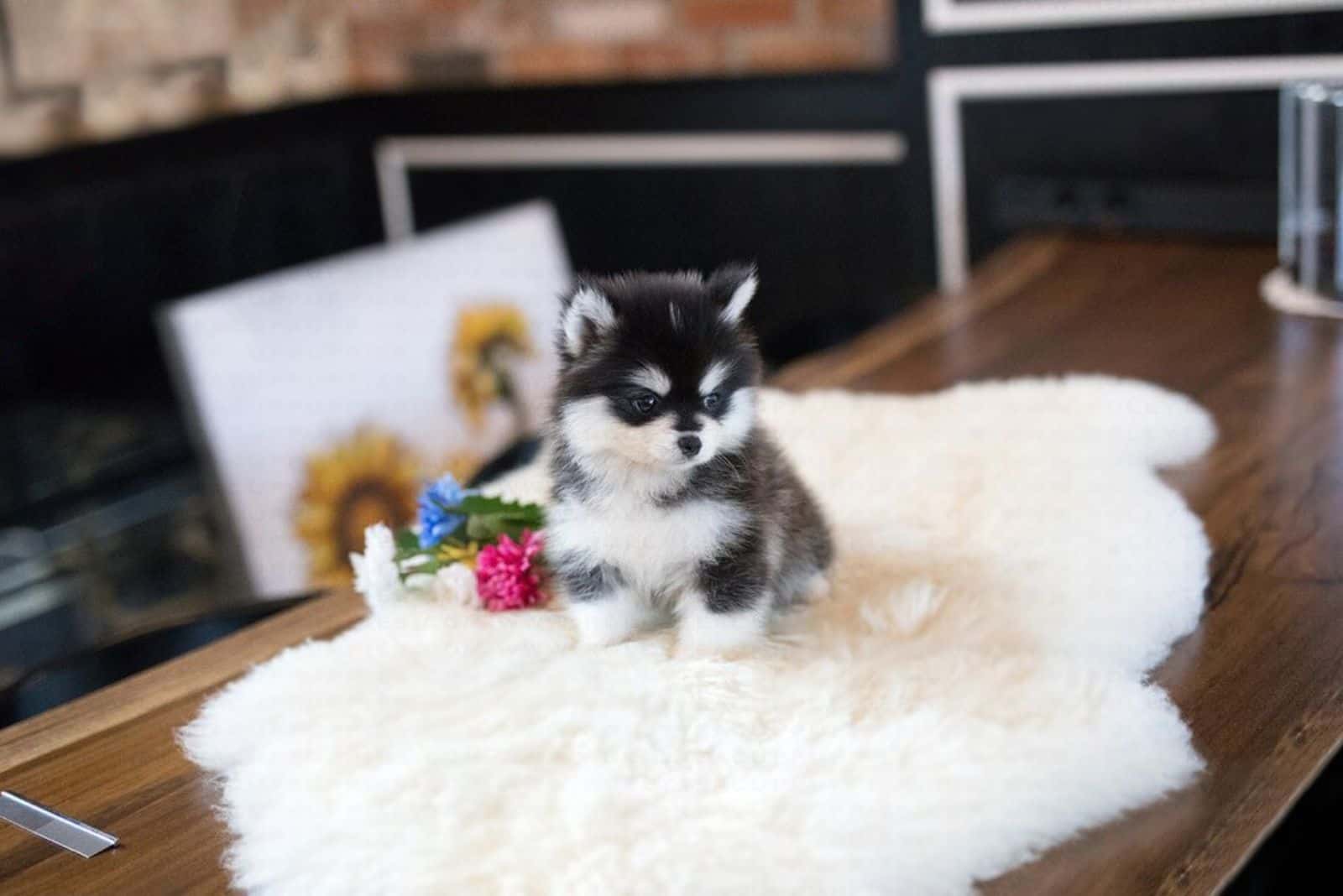
Just like any other dog breed, the teacup Pomsky also has many pros and cons. Whether you should get one depends solely on your preferences. It would be best to take a look at the pros and cons list we’ve put together for future Pomsky owners.
| Pros | Cons |
|---|---|
| full of energy, but still cuddly | tiny and prone to accidental injuries |
| trainable and sociable | cost A LOT of money |
| long life expectancy (10–15 years) | fragile |
| small and adorable | may carry congenital disabilities |
| good first pets | can’t serve as watch or guard dogs |
To help you decide whether to get a teacup Pomsky or not, here are some answered faqs.
Are Pomskies big barkers?
Pomskies may or may not be big barkers. Since they’re the mix of two dogs, being vocal depends on which parent the puppy takes after. If it takes after the Husky more, it’s normal for the puppy to howl, sing, whine, and yelp.
On the other hand, if the puppy inherits the Pomeranian’s barking tendencies, the puppy will have a high-pitched bark, but it will not bark that often.
Are teacup Pomskies big cuddlers?
Teacup Pomskies are loyal pups who enjoy cuddling with their owners. It’s their way of showing their affection and trying to protect their owner despite their small size.
Do teacup Pomskies stay small?
Teacup Pomskies don’t grow over 10 inches. Dog breeders made sure they won’t. Teacup puppies are produced when breeders pick runts carefully from various litters. Reaching maturity doesn’t mean your teacup Pomsky will grow.
Should You Or Should You Not Get A Teacup Pomsky?
Truth be told, we can’t just say “go and get a teacup Pomsky.” There are some risks that come with this dog breed. If you’re even a little bit clumsy or aren’t knowledgeable about handling small dogs, then this is not the dog for you.
Teacup Pomskies are really teenie-tiny. Giving them to someone who can’t handle a micro pet puts them in danger.
But, if you’re confident about handling small pooches, then, by all means, go for it! Pomskies are adorably friendly pups for eternal friendship.
